

With a rich experience stretching more than a decade and 20 countries in North America, the Middle East, and Africa, I am a rising professional who thrives in diverse industries including Software Development, Higher Education, Microfinance, Youth Development, Startup Investment, and beyond. My journey is marked by collaborative success stories, where my contributions have consistently elevated individuals and business operations, aligning them with impactful growth and revenue enhancement.
At my core, I excel in turning profitability into a standard practice, creating ecosystems that nurture positive customer interactions and the successful achievement of targets. My approach is detail-oriented, focusing on delivering in-depth intelligence through process mapping, and innovative pattern recognition. This ensures that individuals and businesses not only stay informed but also lead.
I aim to offer strategic insights that refine business processes and exceed quality standards, advocating for a culture of continuous improvement and the integration of emerging technologies.
My expertise is broad, encompassing Agile Mindset and Digital Transformation Training, AI Business Research & Application Coaching, and Digital Leadership, among others. I am passionate about empowering others through Personal Branding in the Digital Age, Business Growth & Expansion, and comprehensive Strategy Development.
As an Idea Validation, Business Startup, and Attention Building Coach, I bring a wealth of knowledge to the table. My experience is further enriched by overcoming personal failures in 7 businesses, providing me with invaluable insights into the pitfalls of entrepreneurship and how to navigate them successfully.
Javnyuy has been featured on over 100+ media platforms including BBC, Voice of America, Cameroon National Television, Obama Foundation, Pan African Visions Magazine, Africa Business Communities, West Africa Civil Society Institute, Cameroon CEO Magazine, Afro Hustler, theMonDaily, East African Watch, The Guardian Post Newspaper, Living African Podcast and more.
Author of 5 books. Find them on amazon:
https://www.amazon.com/stores/author/B0BVZ2GMSG
Let's connect and explore how we can collaborate to foster business innovation, growth, and transformation. Together, we can design strategies that not only meet but surpass expectations, setting new benchmarks for excellence in the digital era.
Available For: Advising, Consulting, Influencing, Speaking
Travels From: Houston, Texas
Speaking Topics: Idea Validation, Business Startup, Attention Building & Monetization, Industry Credibility Building, Business Model Development, Business Offers Creat
| Dr. Joybert Javnyuy | Points |
|---|---|
| Academic | 60 |
| Author | 672 |
| Influencer | 69 |
| Speaker | 138 |
| Entrepreneur | 20 |
| Total | 959 |
Points based upon Thinkers360 patent-pending algorithm.
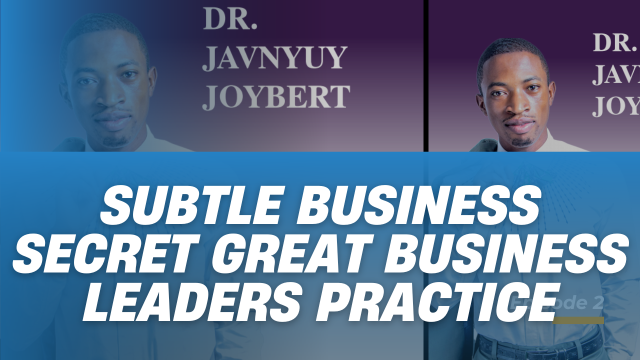 Business Secret Great Business Leaders Practice
Business Secret Great Business Leaders Practice
Tags: Business Continuity, Business Strategy, Entrepreneurship
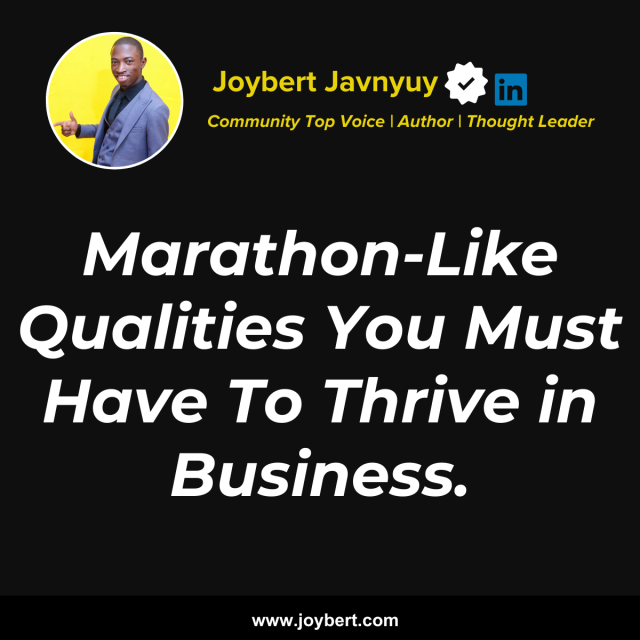 Marathon-Like Qualities You Must Have To Thrive in Business – Dr. Javnyuy Joybert
Marathon-Like Qualities You Must Have To Thrive in Business – Dr. Javnyuy Joybert
Tags: Business Continuity, Entrepreneurship, Startups
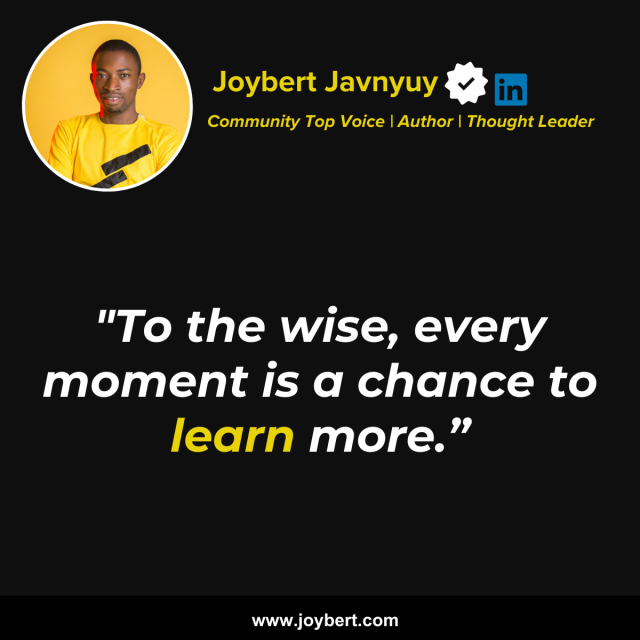 13-15 out of 15 Things I wish I Knew Early in my Career – Javnyuy Joybert
13-15 out of 15 Things I wish I Knew Early in my Career – Javnyuy Joybert
Tags: Careers, Coaching, Leadership
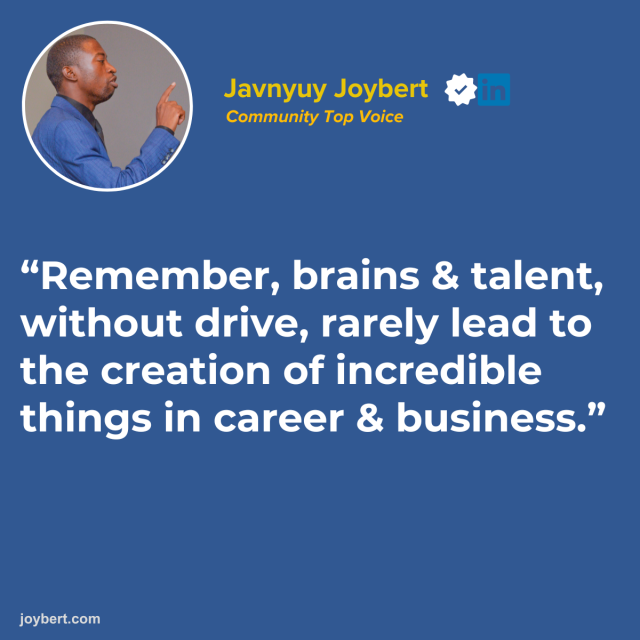 One Ingredient for Creating Incredible Things in Career & Business – Javnyuy Joybert
One Ingredient for Creating Incredible Things in Career & Business – Javnyuy Joybert
Tags: Business Continuity, Coaching, Leadership
Tags: Change Management, Coaching
 Put Your Secret Weapon to Work - Javnyuy Joybert
Put Your Secret Weapon to Work - Javnyuy Joybert
Tags: Change Management, Coaching, Creativity
 Poverty Consciousness I Have Observed Among Cameroonians (Africans) - Javnyuy Joybert
Poverty Consciousness I Have Observed Among Cameroonians (Africans) - Javnyuy Joybert
Tags: Leadership, Business Strategy, Ecosystems
 14 Signs You are a Millennial Professional Potential Disaster (Born between 1980 & 2000)
14 Signs You are a Millennial Professional Potential Disaster (Born between 1980 & 2000)
Tags: Digital Disruption, Digital Transformation, Future of Work
 Born Between 1980 to 2000? by Javnyuy Joybert
Born Between 1980 to 2000? by Javnyuy Joybert
Tags: Culture, Digital Disruption, Future of Work
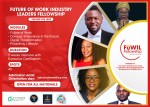 Application Open: The Future of Work Industry Leaders Fellowship
Application Open: The Future of Work Industry Leaders Fellowship
Tags: Digital Disruption, Digital Transformation, Future of Work
 Be a Chief Inspiration Officer (CIO) by Javnyuy Joybert
Be a Chief Inspiration Officer (CIO) by Javnyuy Joybert
Tags: Business Continuity, Entrepreneurship, Leadership
 The RCV Business Growth Protocol by Javnyuy Joybert
The RCV Business Growth Protocol by Javnyuy Joybert
Tags: Business Continuity, Business Strategy, Management
 African Businesses Post COVID-19: The 4 Point Factors by Javnyuy Joybert
African Businesses Post COVID-19: The 4 Point Factors by Javnyuy Joybert
Tags: Business Continuity, COVID19, Digital Transformation
 Leading a Small Business in Chaotic Times – Part 2: The 2 Dynamic Actions by Javnyuy Joybert
Leading a Small Business in Chaotic Times – Part 2: The 2 Dynamic Actions by Javnyuy Joybert
Tags: Entrepreneurship, Business Continuity, COVID19
 Leading a Small Business in Chaotic Times – Part 1: The 4 Core Questions to Answer By Javnyuy Joybert
Leading a Small Business in Chaotic Times – Part 1: The 4 Core Questions to Answer By Javnyuy Joybert
Tags: Lean Startup, Business Continuity, COVID19
 You (I) Have to Repent From These Words During These Times
You (I) Have to Repent From These Words During These Times
Tags: Social, Diversity and Inclusion, COVID19
 3 Personalities We Should Express From Henceforward This 2020 By Javnyuy Joybert
3 Personalities We Should Express From Henceforward This 2020 By Javnyuy Joybert
Tags: Business Continuity, Business Strategy, Leadership
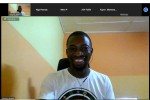 This Entrepreneurship Thing is Greatly Misunderstood?
This Entrepreneurship Thing is Greatly Misunderstood?
Tags: Business Continuity, Entrepreneurship, HR
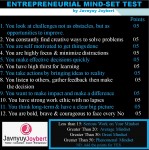 Take the Entrepreneurial Mindset Test by Javnyuy Joybert
Take the Entrepreneurial Mindset Test by Javnyuy Joybert
Tags: Business Continuity, Entrepreneurship, Startups
 Entrepreneurs Growth Plugs – Episode 10: Strategic Skill Utilization by Javnyuy Joybert
Entrepreneurs Growth Plugs – Episode 10: Strategic Skill Utilization by Javnyuy Joybert
Tags: Business Continuity, Entrepreneurship, Lean Startup
 The 5 Simple Money Defining Truths for Young People
The 5 Simple Money Defining Truths for Young People
Tags: Culture, Leadership, Social
 Difficult Moments (COVID-19): What You Should Be Doing – Javnyuy Joybert
Difficult Moments (COVID-19): What You Should Be Doing – Javnyuy Joybert
Tags: Leadership, Entrepreneurship, COVID19
 Entrepreneurs Growth Plugs Series – Episode 6 Responding to Entrepreneurial Challenges by Javnyuy Joybert
Entrepreneurs Growth Plugs Series – Episode 6 Responding to Entrepreneurial Challenges by Javnyuy Joybert
Tags: Leadership, Entrepreneurship
 Entrepreneurs Growth Plugs – Episode 5 The Entrepreneur’s Must Ask Questions by Javnyuy Joybert
Entrepreneurs Growth Plugs – Episode 5 The Entrepreneur’s Must Ask Questions by Javnyuy Joybert
Tags: Entrepreneurship
 Entrepreneurs Growth Plugs – Episode 4: Listen and Listen Again and Continue to Listen by Javnyuy Joybert
Entrepreneurs Growth Plugs – Episode 4: Listen and Listen Again and Continue to Listen by Javnyuy Joybert
Tags: Entrepreneurship
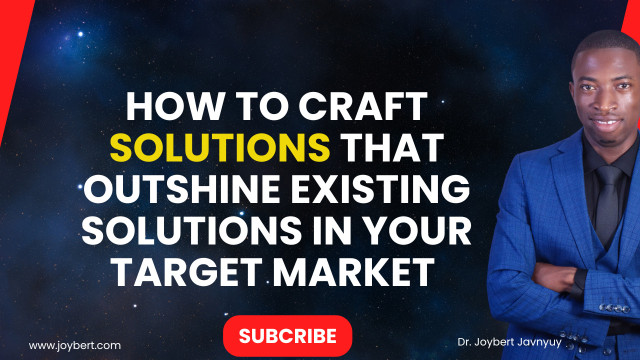 How to Craft Solutions That Outshine Existing Solutions in Your Target Market || Dr. Joybert Javnyuy
How to Craft Solutions That Outshine Existing Solutions in Your Target Market || Dr. Joybert Javnyuy
Tags: Business Strategy, Coaching, Entrepreneurship
 Create Your Personal AI Road Map - Dr. Joybert Javnyuy
Create Your Personal AI Road Map - Dr. Joybert Javnyuy
Tags: AI, Business Strategy, Digital Transformation
 Poverty Indoctrination in Africa Through the Education System? by Dr. Joybert Javnyuy
Poverty Indoctrination in Africa Through the Education System? by Dr. Joybert Javnyuy
Tags: Business Strategy, Coaching, Entrepreneurship
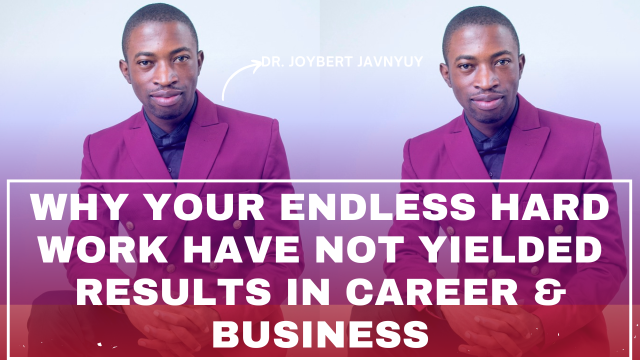 Why Your Endless Hard Work Have Not Yielded Results in Career & Business.
Why Your Endless Hard Work Have Not Yielded Results in Career & Business.
Tags: Business Strategy, Coaching, Entrepreneurship
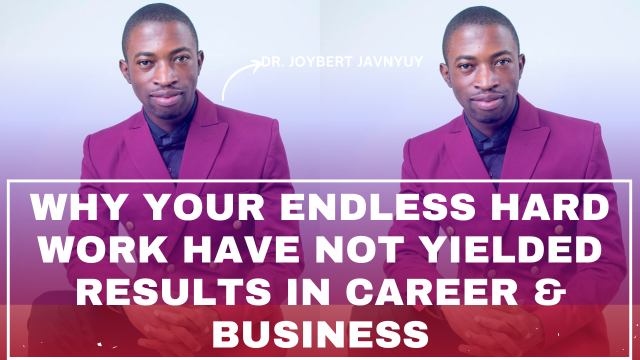 Why Your Endless Hard Work Have Not Yielded Results in Career & Business - Dr. Joybert Javnyuy
Why Your Endless Hard Work Have Not Yielded Results in Career & Business - Dr. Joybert Javnyuy
Tags: Business Strategy, Coaching, Entrepreneurship
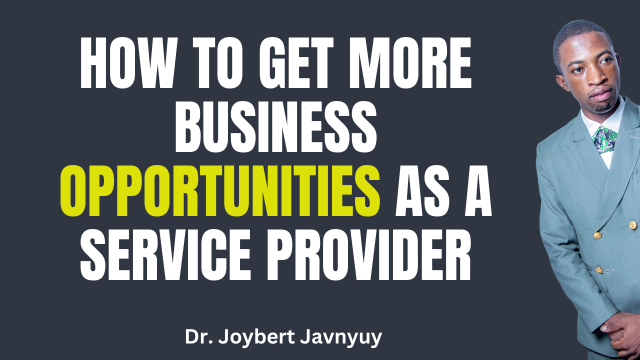 How to Get More Business Opportunities as a Service Provider by Dr. Joybert Javnyuy
How to Get More Business Opportunities as a Service Provider by Dr. Joybert Javnyuy
Tags: Business Strategy, Coaching, Entrepreneurship
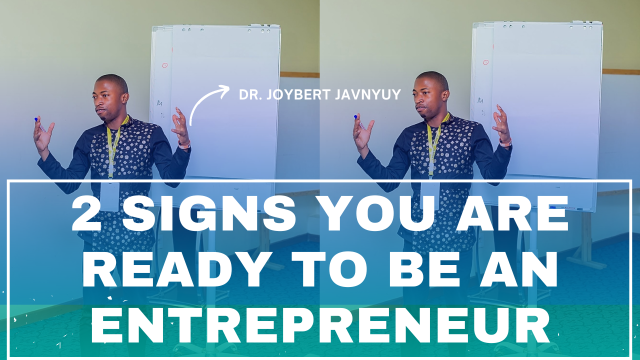 2 Signs You Are Not Ready to be an Entrepreneur – Dr. Joybert Javnyuy
2 Signs You Are Not Ready to be an Entrepreneur – Dr. Joybert Javnyuy
Tags: Entrepreneurship, Lean Startup, Startups
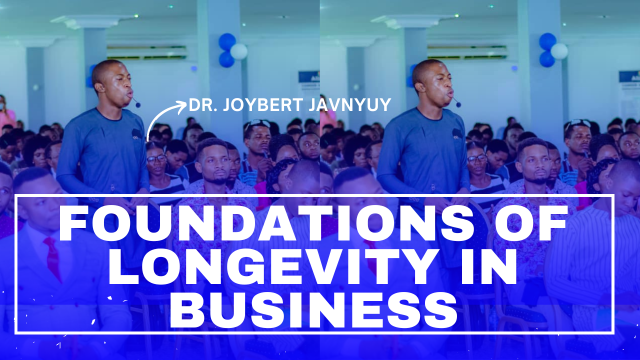 The Foundations of Longevity in Business - Dr. Joybert Javnyuy
The Foundations of Longevity in Business - Dr. Joybert Javnyuy
Tags: Coaching, Entrepreneurship, Startups
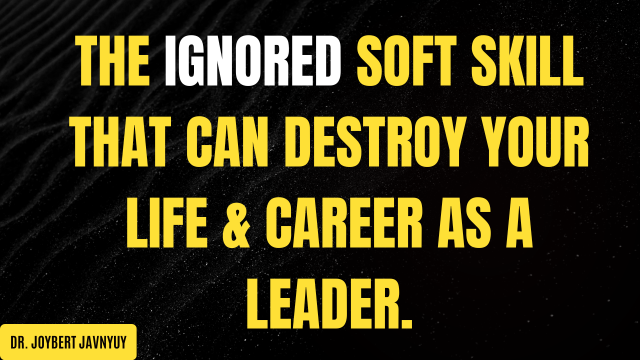 The ignored soft Skill That Can Destroy Your life & career as a leader - Dr. Joybert Javnyuy
The ignored soft Skill That Can Destroy Your life & career as a leader - Dr. Joybert Javnyuy
Tags: Business Strategy, Coaching, Entrepreneurship
 This is Destroying Many in This Generation. Are You Involved? - Dr. Joybert Javnyuy
This is Destroying Many in This Generation. Are You Involved? - Dr. Joybert Javnyuy
Tags: Business Strategy, Coaching, Entrepreneurship
 Stop Believing This Lie: The Truth About Achieving Top-Tier Success - Dr. Javnyuy Joybert
Stop Believing This Lie: The Truth About Achieving Top-Tier Success - Dr. Javnyuy Joybert
Tags: Business Strategy, Coaching, Entrepreneurship
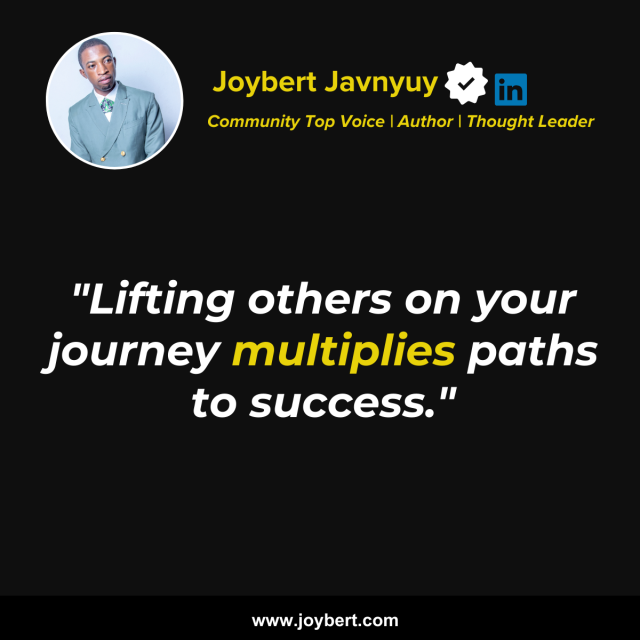 Is This How to Attain Sustainable Success? - Dr. Joybert Javnyuy
Is This How to Attain Sustainable Success? - Dr. Joybert Javnyuy
Tags: Coaching, Leadership, Personal Branding
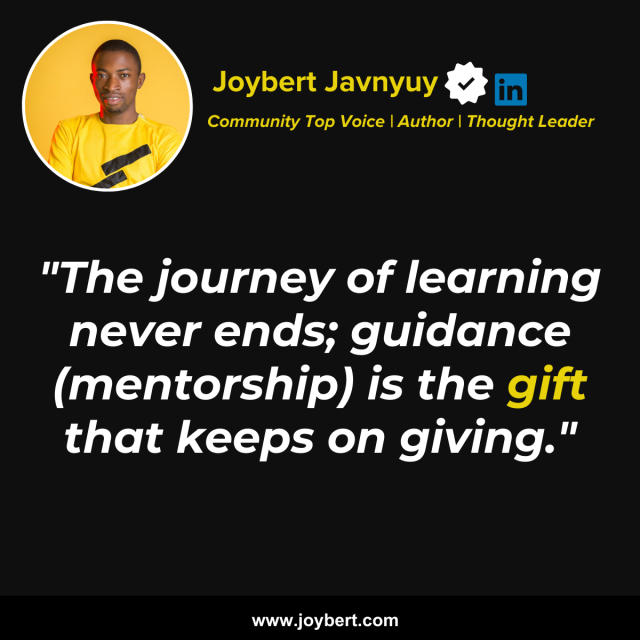 Transform Your Money, Network, and Career: The Unstuck Method by Dr. Javnyuy Joybert
Transform Your Money, Network, and Career: The Unstuck Method by Dr. Javnyuy Joybert
Tags: Careers, Coaching, Entrepreneurship
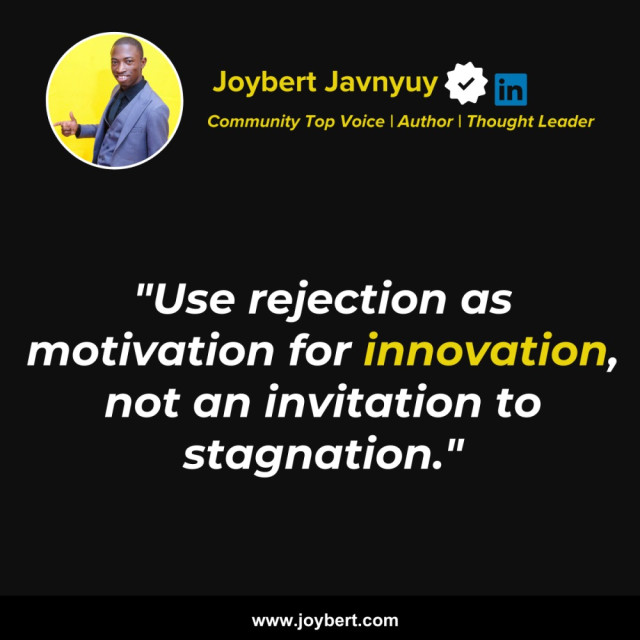 Rejection is Not an Invitation to Stagnation - Dr. Javnyuy Joybert
Rejection is Not an Invitation to Stagnation - Dr. Javnyuy Joybert
Tags: Business Strategy, Coaching, Entrepreneurship
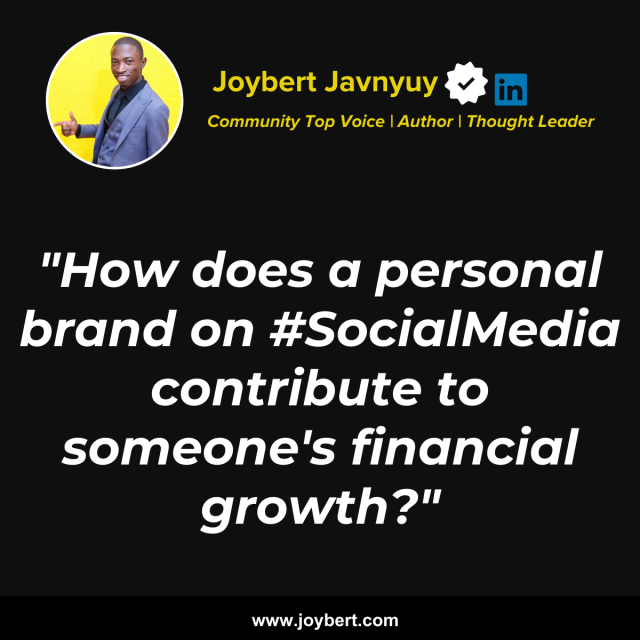 How Personal Brand on Social Media Contribute to Financial Success - Joybert Javnyuy
How Personal Brand on Social Media Contribute to Financial Success - Joybert Javnyuy
Tags: Business Strategy, Entrepreneurship, Personal Branding
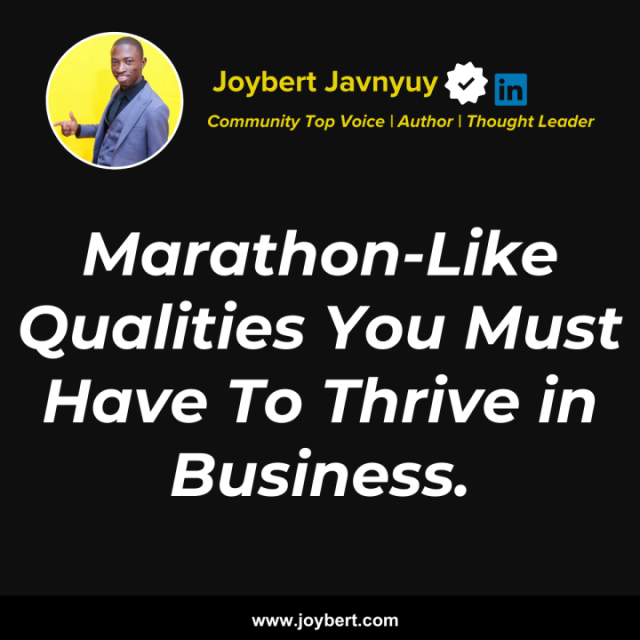 Marathon-Like Qualities You Must Have To Thrive in Business – Dr. Javnyuy Joybert
Marathon-Like Qualities You Must Have To Thrive in Business – Dr. Javnyuy Joybert
Tags: Business Strategy, Coaching, Entrepreneurship
 Activate Your Emotional Thermostat – Dr. Javnyuy Joybert
Activate Your Emotional Thermostat – Dr. Javnyuy Joybert
Tags: Business Strategy, Coaching, Entrepreneurship
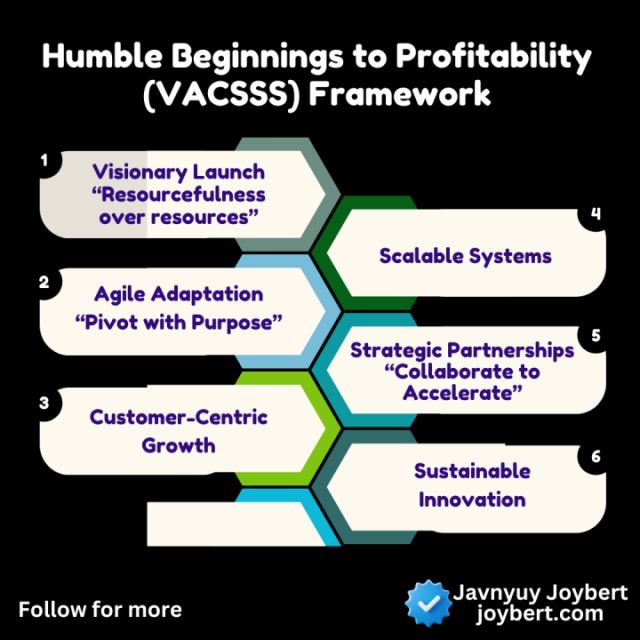 Humble Beginnings to Profitability Framework by Dr. Javnyuy Joybert
Humble Beginnings to Profitability Framework by Dr. Javnyuy Joybert
Tags: Business Continuity, Business Strategy, Entrepreneurship
 5 +2 Startup Lessons From DHL's Early Days - Javnyuy Joybert
5 +2 Startup Lessons From DHL's Early Days - Javnyuy Joybert
Tags: Business Continuity, Business Strategy, Entrepreneurship
 Overcome Weak Foundation
Overcome Weak Foundation
Tags: Careers, Change Management, Coaching
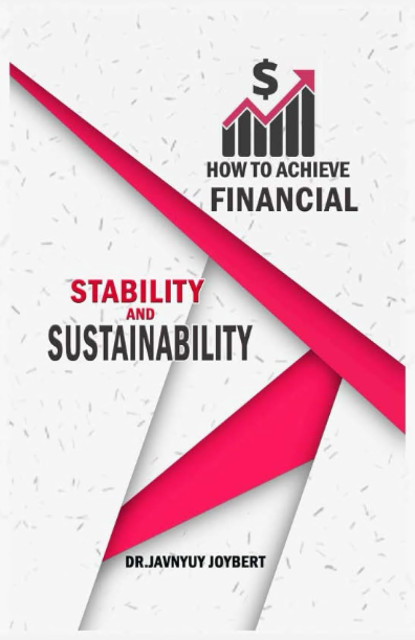 How to Achieve Financial Stability And Sustainability by Dr. Javnyuy Joybert
How to Achieve Financial Stability And Sustainability by Dr. Javnyuy Joybert
Tags: Coaching, Entrepreneurship, Finance
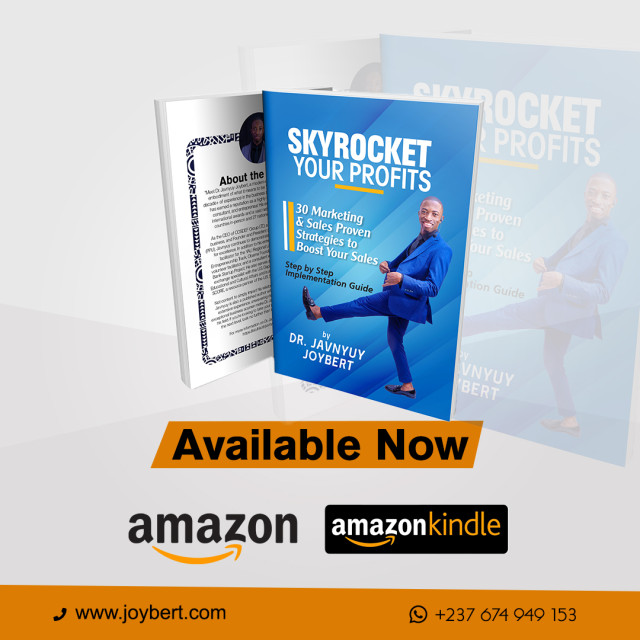 Skyrocket Your Profits: 30 Marketing & Sales Proven Strategies to Boost Your Sales in Small Business by Javnyuy Joybert
Skyrocket Your Profits: 30 Marketing & Sales Proven Strategies to Boost Your Sales in Small Business by Javnyuy Joybert
Tags: Business Strategy, Entrepreneurship, Sales
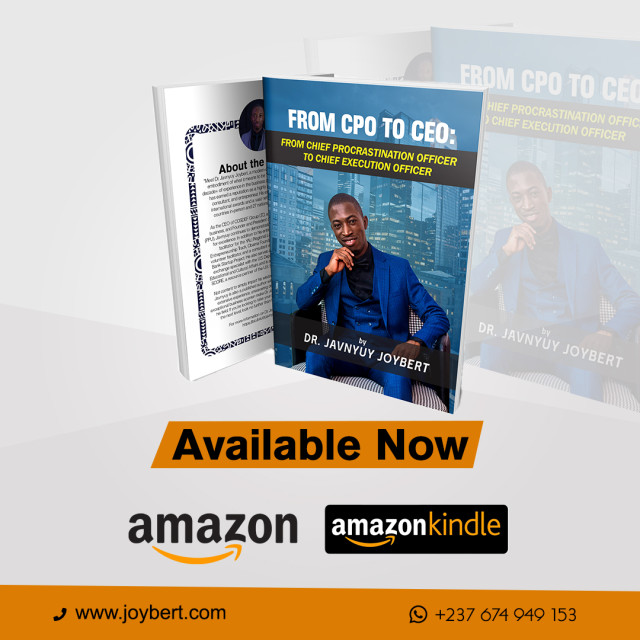 From CPO to CEO: From Chief Procrastination Officer to Chief Execution Officer
From CPO to CEO: From Chief Procrastination Officer to Chief Execution Officer
Tags: Coaching, Leadership, Management
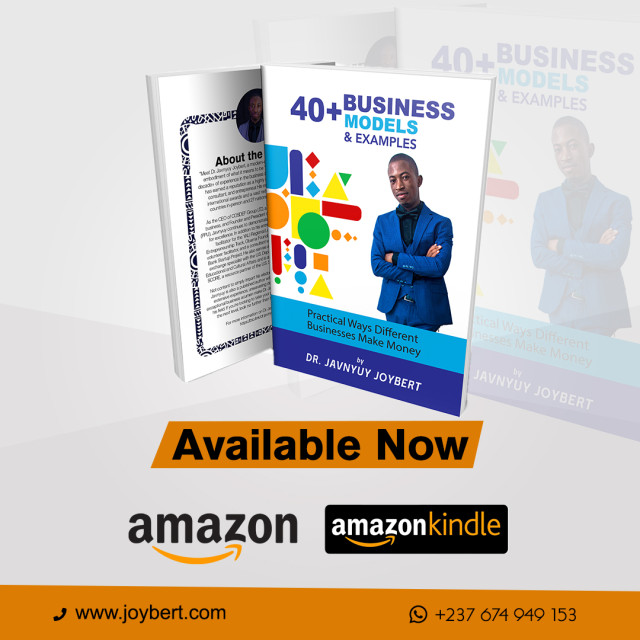 40+ Business Models and Examples: Practical Ways Different Businesses Make Money by Javnyuy Joybert
40+ Business Models and Examples: Practical Ways Different Businesses Make Money by Javnyuy Joybert
Tags: Business Strategy, Entrepreneurship, Startups
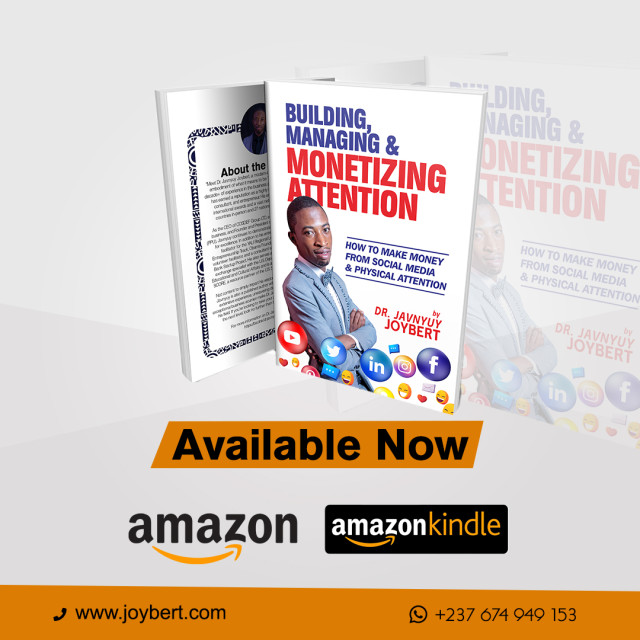 Building, Managing & Monetizing Attention: How to Make Money From Social Media & Physical Attention by Dr. Javnyuy Joybert
Building, Managing & Monetizing Attention: How to Make Money From Social Media & Physical Attention by Dr. Javnyuy Joybert
Tags: Business Strategy, Coaching, Personal Branding
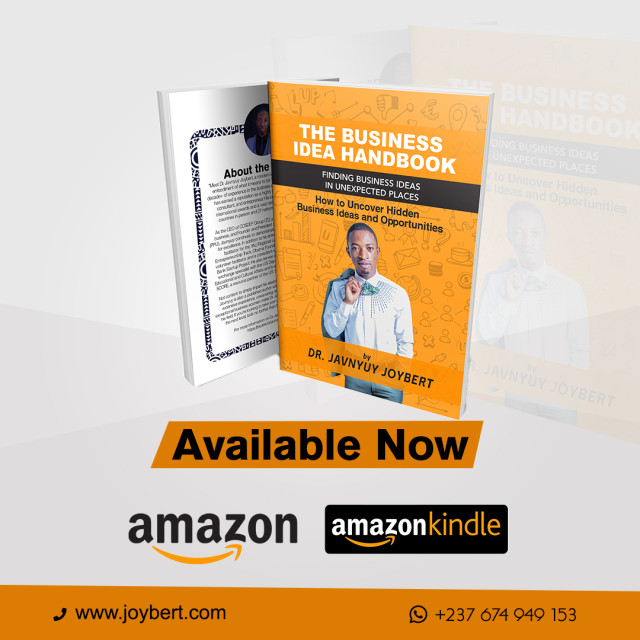 The Business Idea Handbook: Finding Business Ideas in Unexpected Places by Dr. Javnyuy Joybert
The Business Idea Handbook: Finding Business Ideas in Unexpected Places by Dr. Javnyuy Joybert
Tags: Entrepreneurship, Lean Startup, Startups
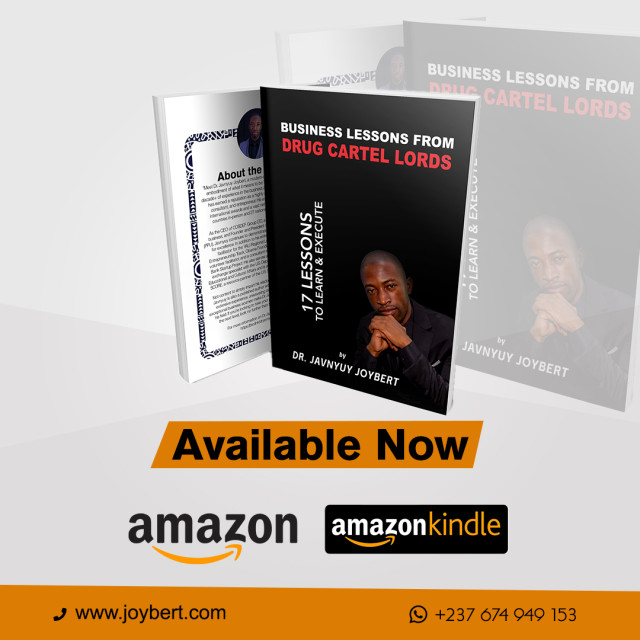 Business Lessons From Drug Cartel Lords: 17 Lessons To Learn & Execute by Dr. Javnyuy Joybert
Business Lessons From Drug Cartel Lords: 17 Lessons To Learn & Execute by Dr. Javnyuy Joybert
Tags: Business Continuity, Business Strategy, Change Management
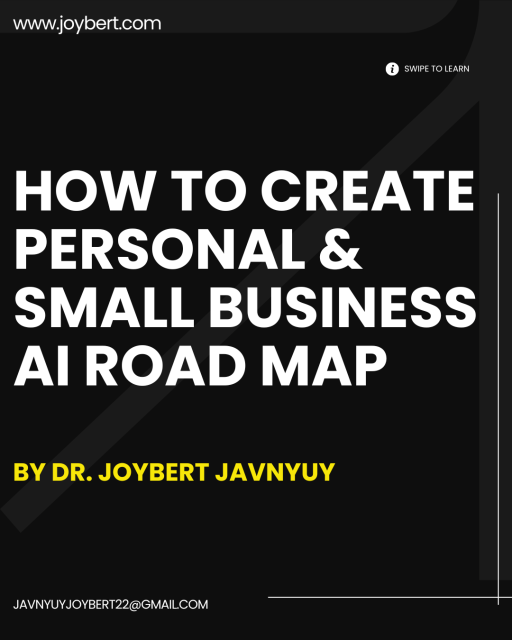 How to Create Personal & Small business AI Road Map by Dr. Joybert Javnyuy
How to Create Personal & Small business AI Road Map by Dr. Joybert Javnyuy
Tags: AI, Business Strategy, Digital Transformation
 7 Tips to Showcase Your Abilities Using Your Online Portfolio (Freelancer) by Dr. Joybert Javnyuy
7 Tips to Showcase Your Abilities Using Your Online Portfolio (Freelancer) by Dr. Joybert Javnyuy
Tags: Business Strategy, Entrepreneurship, Personal Branding
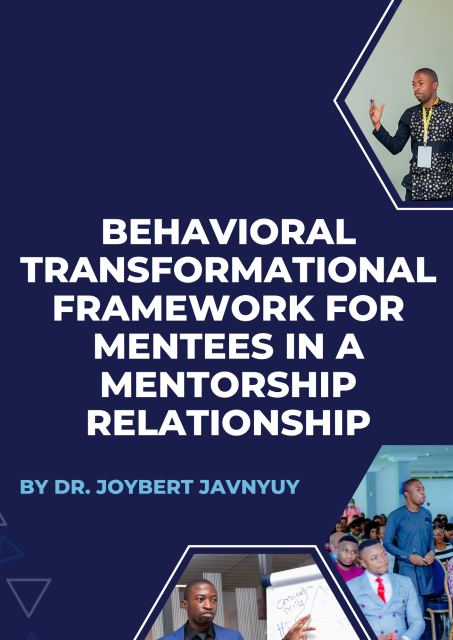 Behavioral Transformational Framework for Mentees in a Mentorship Relationship by Dr. Joybert Javnyuy
Behavioral Transformational Framework for Mentees in a Mentorship Relationship by Dr. Joybert Javnyuy
Tags: Business Strategy, Coaching, Leadership
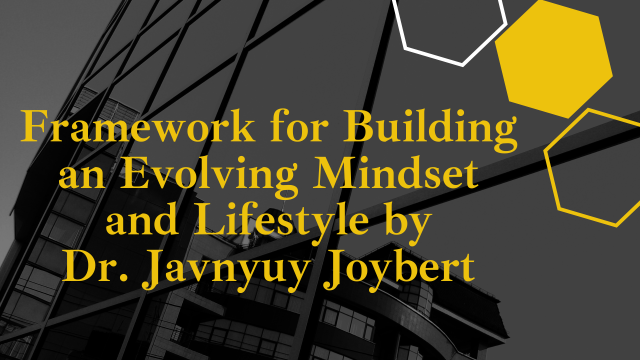 Framework for Building an Evolving Mindset and Lifestyle by Dr. Javnyuy Joybert
Framework for Building an Evolving Mindset and Lifestyle by Dr. Javnyuy Joybert
Tags: Business Strategy, Coaching, Leadership
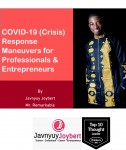 COVID-19 (Crisis) Response Maneuvers for Professionals & Entrepreneurs by Javnyuy Joybert
COVID-19 (Crisis) Response Maneuvers for Professionals & Entrepreneurs by Javnyuy Joybert
Tags: Business Continuity, Business Strategy, COVID19
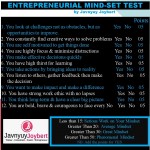 Entrepreneurial Mind-Set Test
Entrepreneurial Mind-Set Test
Tags: Business Continuity, Entrepreneurship, Startups
 Career & Finance Growth Secrets For Youth By Javnyuy Joybert & Mbong Kimbi
Career & Finance Growth Secrets For Youth By Javnyuy Joybert & Mbong Kimbi
Tags: Social, Entrepreneurship, Business Continuity
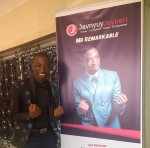 5 Pieces of Advice for Job Seekers When Dealing with Startup Companies
5 Pieces of Advice for Job Seekers When Dealing with Startup Companies
Tags: Entrepreneurship, HR, Startups
 Dr. Joybert Javnyuy Named 2024 Men To Watch Honoree by Black Leaders Worldwide
Dr. Joybert Javnyuy Named 2024 Men To Watch Honoree by Black Leaders Worldwide
Tags: Coaching
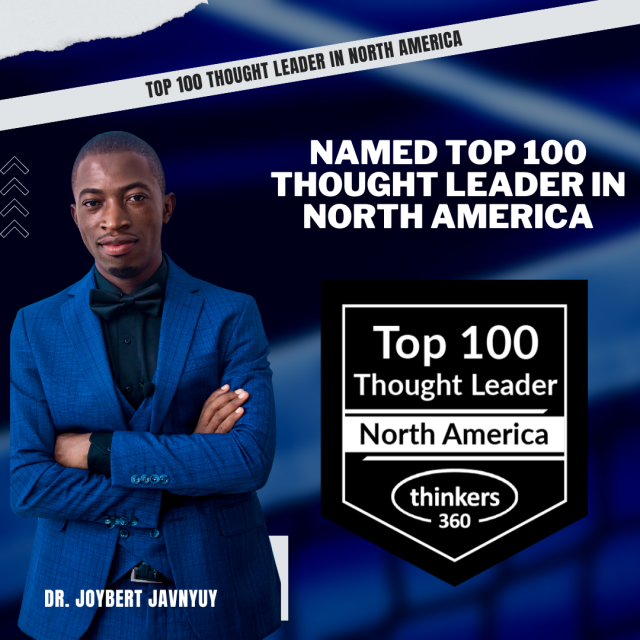 Dr. Joybert Javnyuy Among the Top 100 Thought Leaders in North America
Dr. Joybert Javnyuy Among the Top 100 Thought Leaders in North America
Tags: Coaching
 Javnyuy Joybert: 2020 100 Most Influential Young Africans
Javnyuy Joybert: 2020 100 Most Influential Young Africans
Tags: Entrepreneurship
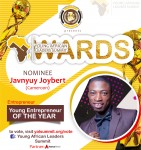 Who Is Javnyuy Joybert, Africa’s Young Entrepreneur Of The Year?
Who Is Javnyuy Joybert, Africa’s Young Entrepreneur Of The Year?
Tags: Entrepreneurship, Startups
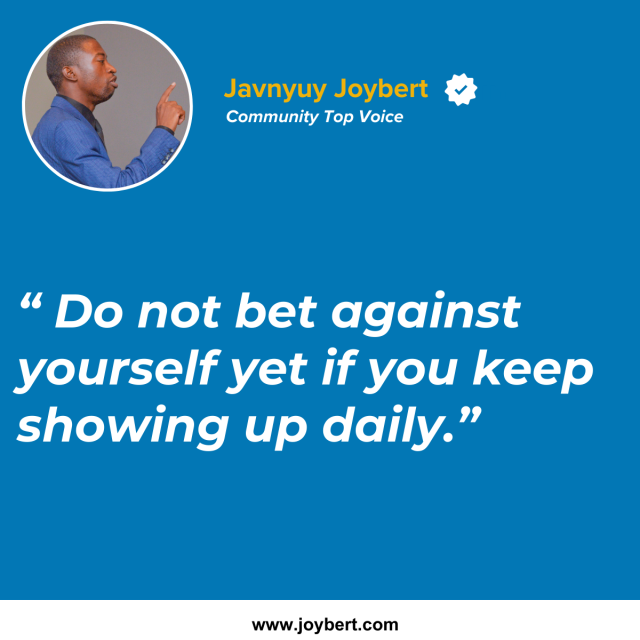 10-12 out of 15 Things I wish I Knew Early in my Career - Joybert Javnyuy
10-12 out of 15 Things I wish I Knew Early in my Career - Joybert Javnyuy
Tags: Careers, Coaching, Leadership
 7-9 out of 15 Things I wish I Knew Early in my Career - Joybert Javnyuy
7-9 out of 15 Things I wish I Knew Early in my Career - Joybert Javnyuy
Tags: Careers, Coaching, Leadership
 4-6 out of 15 Things I wish I Knew Early in my Career - Javnyuy Joybert
4-6 out of 15 Things I wish I Knew Early in my Career - Javnyuy Joybert
Tags: Coaching, Entrepreneurship, Leadership
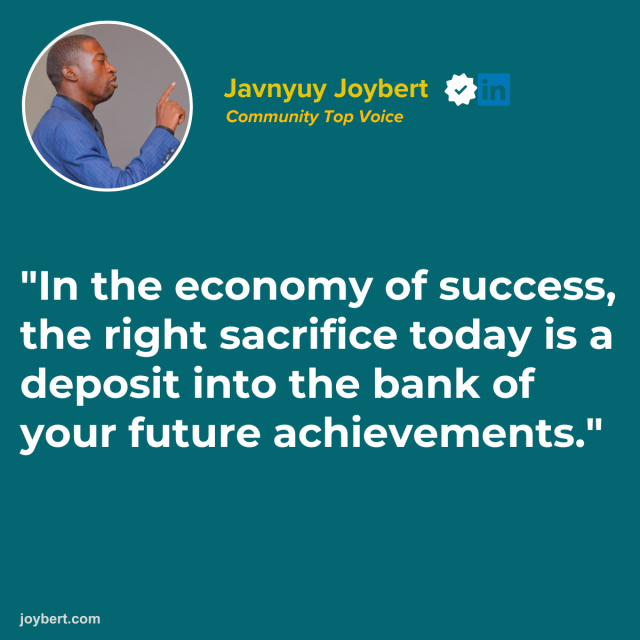 Do You Have The Common Thread Among Winners? – Javnyuy Joybert
Do You Have The Common Thread Among Winners? – Javnyuy Joybert
Tags: Coaching, Entrepreneurship, Leadership
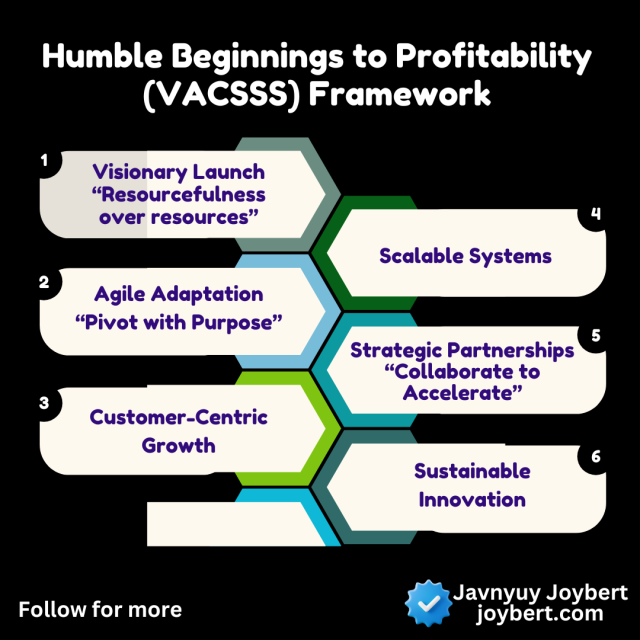 Humble Beginnings to Profitability Framework by Dr. Javnyuy Joybert
Humble Beginnings to Profitability Framework by Dr. Javnyuy Joybert
Tags: Business Continuity, Business Strategy, Entrepreneurship
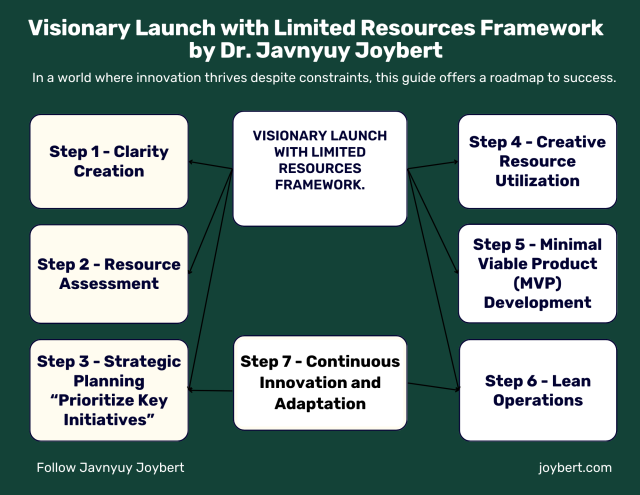 Visionary Business Launch With Limited Resources Framework by Dr. Javnyuy Joybert
Visionary Business Launch With Limited Resources Framework by Dr. Javnyuy Joybert
Tags: Business Strategy, Entrepreneurship, Lean Startup
 International Youth Day 2020 in the Midst of Chaos; Way Forward - By Javnyuy Joybert
International Youth Day 2020 in the Midst of Chaos; Way Forward - By Javnyuy Joybert
Tags: COVID19, Future of Work, Leadership
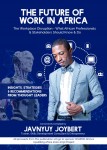 The Future of Work in Africa: The Workplace Disruption - What African Professionals & Stakeholders Should Know & DO
The Future of Work in Africa: The Workplace Disruption - What African Professionals & Stakeholders Should Know & DO
Tags: Business Continuity, Future of Work, HR
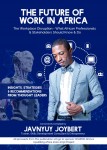 The Future of Work in Africa: What African Professionals & Stakeholders Should Know & Do
The Future of Work in Africa: What African Professionals & Stakeholders Should Know & Do
Tags: Business Strategy, COVID19, Future of Work
 Will Coronavirus (COVID-19) Accelerate the Future of Work in Africa (Cameroon)? By Javnyuy Joybert
Will Coronavirus (COVID-19) Accelerate the Future of Work in Africa (Cameroon)? By Javnyuy Joybert
Tags: Future of Work, Change Management, COVID19
 Keynote Address Excepts: 2019 Small Business & Entrepreneurship Forum - Javnyuy Joybert
Keynote Address Excepts: 2019 Small Business & Entrepreneurship Forum - Javnyuy Joybert
Tags: Entrepreneurship, Startups
 Ready to Improve Your Life? Practice Value Creating Activities by Javnyuy Joybert
Ready to Improve Your Life? Practice Value Creating Activities by Javnyuy Joybert
Tags: Leadership
 Javnyuy Joybert’s 5 Steps to Developing Self-Discipline as an Entrepreneur
Javnyuy Joybert’s 5 Steps to Developing Self-Discipline as an Entrepreneur
Tags: Business Continuity, Entrepreneurship, Startups
 Dr. Joybert Javnyuy Featured in The Inspirers Magazine.
Dr. Joybert Javnyuy Featured in The Inspirers Magazine.
Tags: Entrepreneurship, Leadership, Personal Branding

Tags: Coaching, Leadership, Social
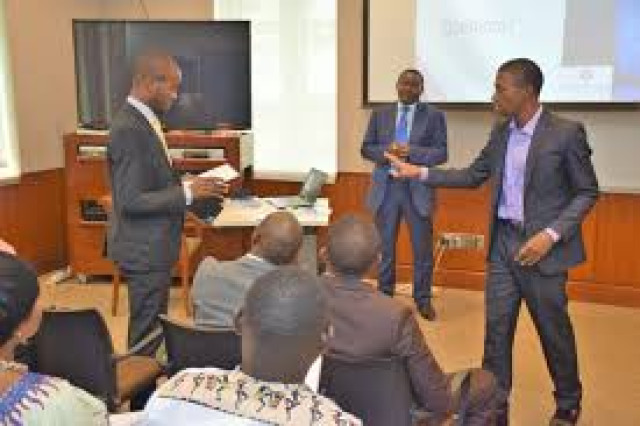 From Humble Beginnings to Global Influence: Dr. Javnyuy Joybert’s Inspiring Odyssey
From Humble Beginnings to Global Influence: Dr. Javnyuy Joybert’s Inspiring Odyssey
Tags: Entrepreneurship, Leadership, Personal Branding

Tags: Entrepreneurship, Leadership, Startups

Tags: Business Continuity, Business Strategy, Entrepreneurship

Tags: Business Strategy, Entrepreneurship, Personal Branding
 This Is The Time: Cameroon (Africa) Government Invest Intentionally in Vocational Sectors by Javnyuy Joybert
This Is The Time: Cameroon (Africa) Government Invest Intentionally in Vocational Sectors by Javnyuy Joybert
Tags: Social, Supply Chain, COVID19
 14 Quarantine Commandments by Javnyuy Joybert (Things You Should Not Quarantine)
14 Quarantine Commandments by Javnyuy Joybert (Things You Should Not Quarantine)
Tags: Health and Safety, COVID19
 Difficult Moments (COVID-19): What You Should Be Doing
Difficult Moments (COVID-19): What You Should Be Doing
Tags: Change Management, Entrepreneurship, Business Continuity, COVID19
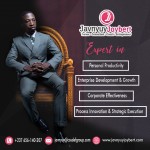 5 Steps to Developing Self-Discipline as an Entrepreneur
5 Steps to Developing Self-Discipline as an Entrepreneur
Tags: Business Continuity, Entrepreneurship, Startups
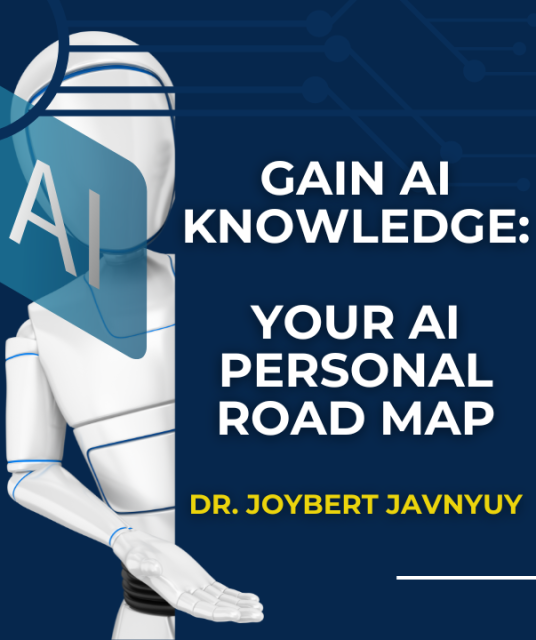 Discover Steps to Boost Your AI Knowledge: Road Map with Dr. Joybert Javnyuy
Discover Steps to Boost Your AI Knowledge: Road Map with Dr. Joybert Javnyuy
Tags: AI, Business Strategy, Digital Transformation
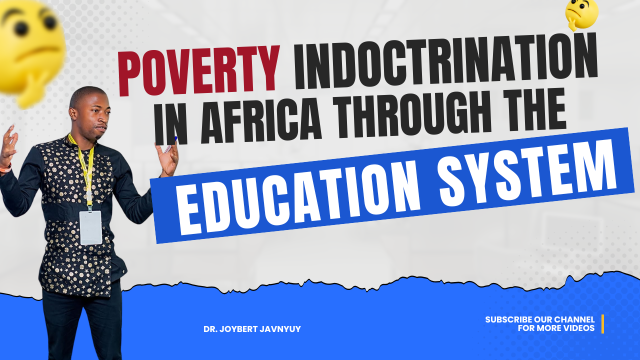 Poverty Indoctrination in Africa Through the #Education System by Dr. Joybert Javnyuy
Poverty Indoctrination in Africa Through the #Education System by Dr. Joybert Javnyuy
Tags: EdTech, Education, Leadership
 Digital Space: 2 Things Experts Must Be Doing Today with Dr. Joybert Javnyuy
Digital Space: 2 Things Experts Must Be Doing Today with Dr. Joybert Javnyuy
Tags: AI, Business Strategy, Digital Transformation
 How To BE the LIGHT of the World - 20 Strategic Ways to be the Light by Dr. Joybert Javnyuy
How To BE the LIGHT of the World - 20 Strategic Ways to be the Light by Dr. Joybert Javnyuy
Tags: Careers, Coaching, Leadership
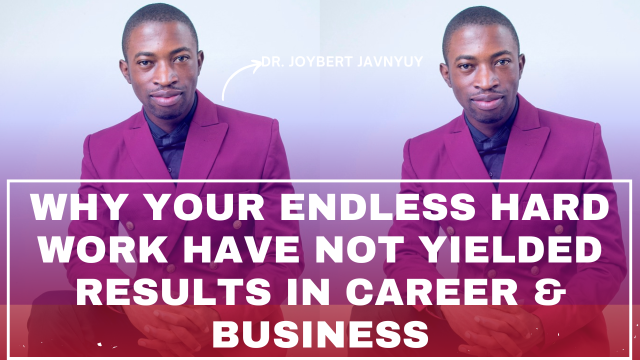 Working Hard With No Results in Career & Business? Start Doing These 5 Things with Dr Javnyuy Joybert
Working Hard With No Results in Career & Business? Start Doing These 5 Things with Dr Javnyuy Joybert
Tags: Careers, Coaching, Leadership
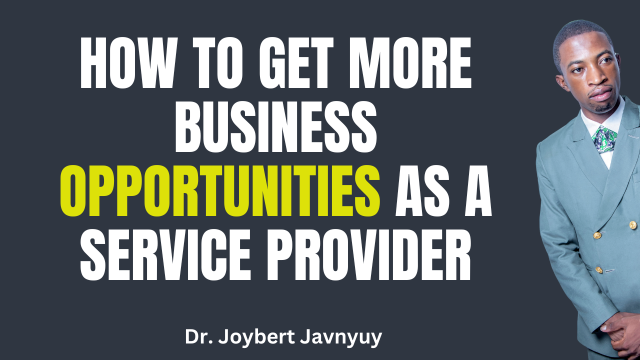 How to Make More Money As a Service Provider - Dr. Joybert Javnyuy
How to Make More Money As a Service Provider - Dr. Joybert Javnyuy
Tags: Business Continuity, Business Strategy, Entrepreneurship
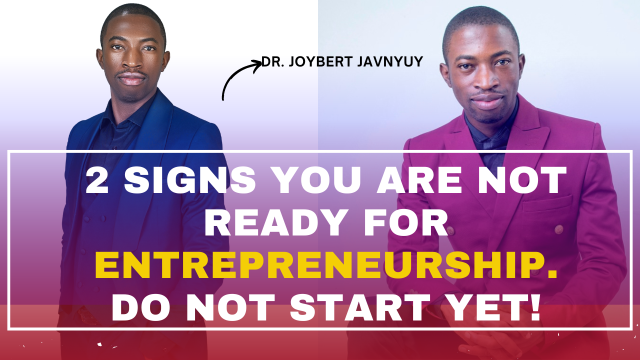 2 Signs You Are Not Ready for #Entrepreneurship: Don't Start That #Business Yet with Dr. Joybert Javnyuy
2 Signs You Are Not Ready for #Entrepreneurship: Don't Start That #Business Yet with Dr. Joybert Javnyuy
Tags: Entrepreneurship, Lean Startup, Startups
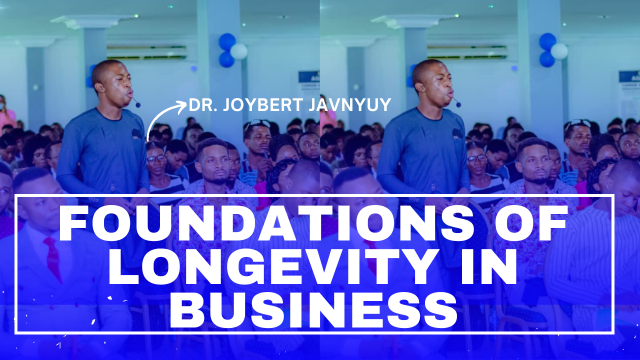 The Foundations of Longevity in Business by Dr. Joybert Javnyuy
The Foundations of Longevity in Business by Dr. Joybert Javnyuy
Tags: Business Continuity, Business Strategy, Leadership
 The Ignored Skill in This Generation that can Lead to Destruction by Dr. Joybert Javnyuy
The Ignored Skill in This Generation that can Lead to Destruction by Dr. Joybert Javnyuy
Tags: Coaching, Entrepreneurship, Leadership
 The Foundation to Attaining Long Term Sustainable Success in Your Industry with Dr. Joybert Javnyuy
The Foundation to Attaining Long Term Sustainable Success in Your Industry with Dr. Joybert Javnyuy
Tags: Careers, Coaching, Leadership
 Stop believing this lie: The truth of top tier success by Dr. Joybert Javnyuy
Stop believing this lie: The truth of top tier success by Dr. Joybert Javnyuy
Tags: Coaching, Leadership, Personal Branding
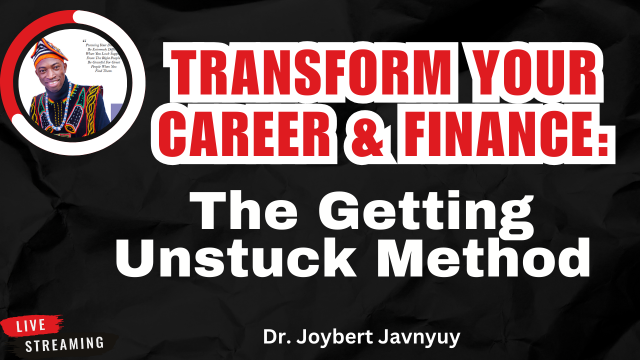 Transform Your Career & Finance: The Getting Unstuck Method with Dr. Joybert Javnyuy
Transform Your Career & Finance: The Getting Unstuck Method with Dr. Joybert Javnyuy
Tags: Business Continuity, Coaching, Entrepreneurship
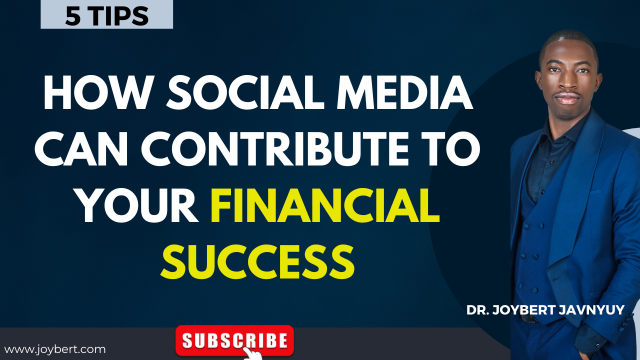 How Social Media Can Contribute to Your Financial Success - Dr. Joybert Javnyuy
How Social Media Can Contribute to Your Financial Success - Dr. Joybert Javnyuy
Tags: Business Strategy, Coaching, Entrepreneurship
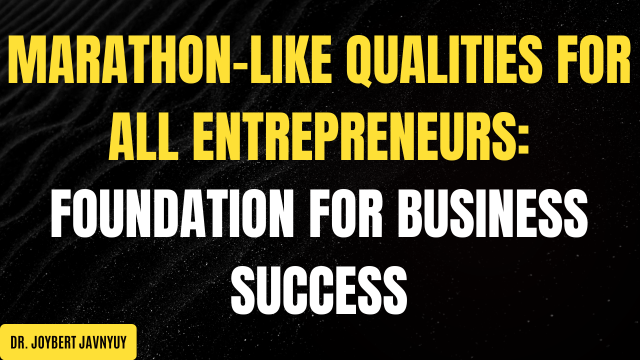 Marathon-Like Qualities for all Entrepreneurs: Foundation for Business Success by Dr. Joybert Javnyuy
Marathon-Like Qualities for all Entrepreneurs: Foundation for Business Success by Dr. Joybert Javnyuy
Tags: Business Strategy, Coaching, Entrepreneurship
 How to Sustain a Successful Life: Activate Emotional Thermostat by Dr Joybert Javnyuy
How to Sustain a Successful Life: Activate Emotional Thermostat by Dr Joybert Javnyuy
Tags: Business Strategy, Coaching, Leadership

Tags: Coaching, Entrepreneurship, Leadership
 3 Proven #Techniques for High Productivity in Career & Business with Dr. Joybert Javnyuy
3 Proven #Techniques for High Productivity in Career & Business with Dr. Joybert Javnyuy
Tags: Business Strategy, Coaching, Entrepreneurship

Tags: Business Strategy, Coaching, Entrepreneurship
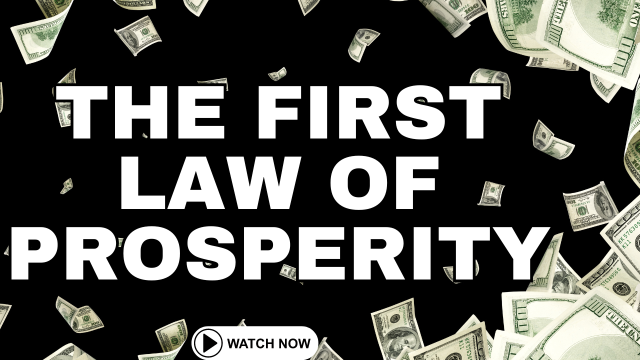 The First Law of Prosperity by Dr. Joybert Javnyuy
The First Law of Prosperity by Dr. Joybert Javnyuy
Tags: Business Strategy, Coaching, Finance
 Shift into a New Dispensation of Results in Your Life & Career Today by Dr. Joybert Javnyuy
Shift into a New Dispensation of Results in Your Life & Career Today by Dr. Joybert Javnyuy
Tags: Careers, Coaching, Leadership
 This Secret Will 100x Your Life's Results |15 Things I Wished I Knew by Dr. Joybert Javnyuy
This Secret Will 100x Your Life's Results |15 Things I Wished I Knew by Dr. Joybert Javnyuy
Tags: Coaching, Culture, Leadership
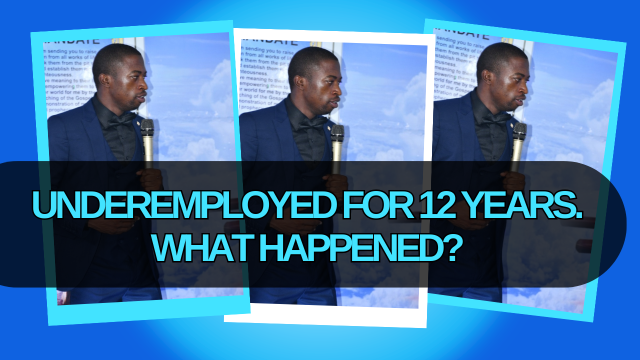 He Remained Underemployed for 12 Years. What Happened? | Dr. Joybert Javnyuy
He Remained Underemployed for 12 Years. What Happened? | Dr. Joybert Javnyuy
Tags: Careers, Coaching, Leadership

Tags: Careers, Coaching, Entrepreneurship

Tags: Agile, Business Continuity, Leadership
 My Biggest Regret in Life Now with Arreby of Dear ArreyB Podcast
My Biggest Regret in Life Now with Arreby of Dear ArreyB Podcast
Tags: Coaching, Entrepreneurship, Personal Branding
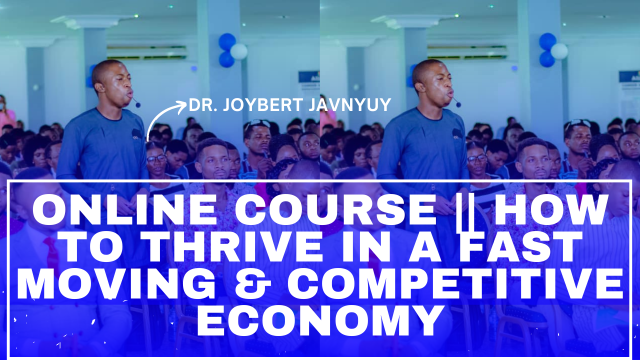 How to Thrive & Lead in a Fast Moving & Competitive Economy with Dr. Joybert Javnyuy
How to Thrive & Lead in a Fast Moving & Competitive Economy with Dr. Joybert Javnyuy
Tags: Change Management, Digital Transformation, Leadership
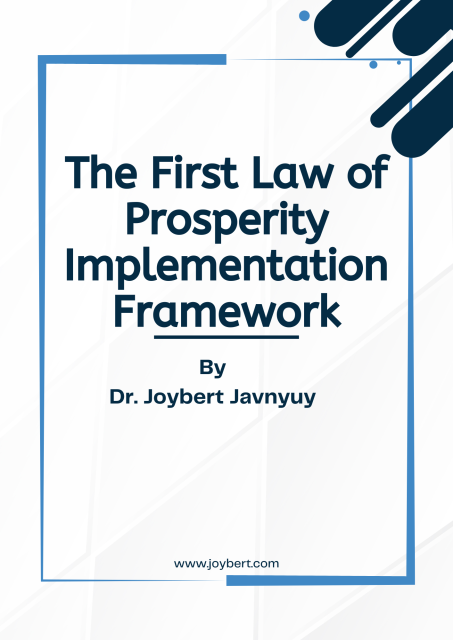 The First Law of Prosperity Implementation Framework by Dr. Joybert Javnyuy
The First Law of Prosperity Implementation Framework by Dr. Joybert Javnyuy
Tags: Business Strategy, Coaching, Entrepreneurship
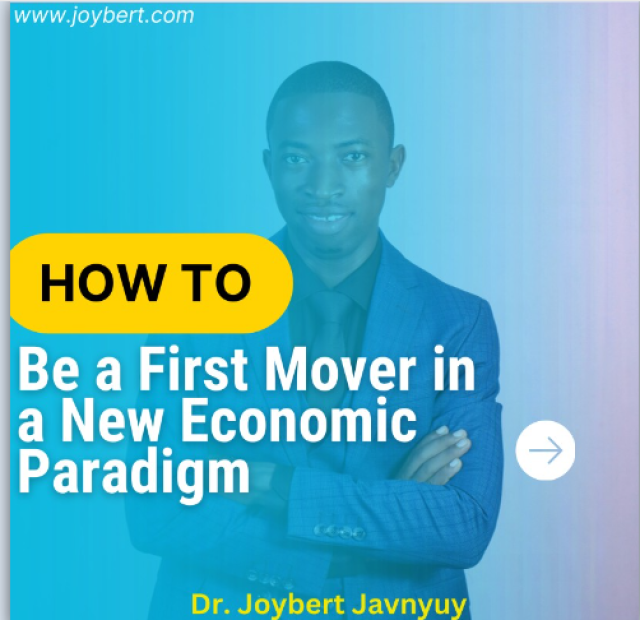 How to be a first mover in a new economic paradigm by Dr. Joybert Javnyuy
How to be a first mover in a new economic paradigm by Dr. Joybert Javnyuy
Tags: Business Strategy, Entrepreneurship, Personal Branding
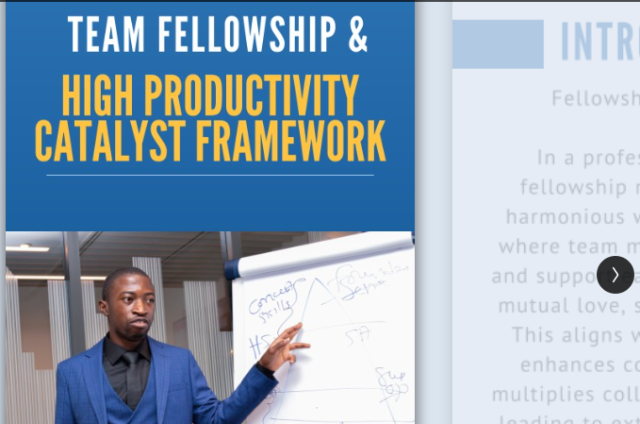 Team Fellowship & High Productivity Catalyst Framework by Dr. Joybert Javnyuy
Team Fellowship & High Productivity Catalyst Framework by Dr. Joybert Javnyuy
Tags: Coaching, Leadership, Management
 3 out of 15 Things I wish I Knew Early in my Career - Javnyuy Joybert
3 out of 15 Things I wish I Knew Early in my Career - Javnyuy Joybert
Tags: Coaching
 Dr. Joybert Javnyuy Among The Top 100 Coaches Africa by GABI Magazine
Dr. Joybert Javnyuy Among The Top 100 Coaches Africa by GABI Magazine
Tags: Coaching
 Entrepreneurs Growth Plugs – Episode 7: What Growth Tools Are You Using? By Javnyuy Joybert
Entrepreneurs Growth Plugs – Episode 7: What Growth Tools Are You Using? By Javnyuy Joybert
Tags: Business Continuity, Business Strategy, Entrepreneurship
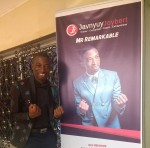 International Youth Day: African Youth Work Hard, Break the Rules – Javnyuy Joybert
International Youth Day: African Youth Work Hard, Break the Rules – Javnyuy Joybert
Tags: Leadership, Education, Future of Work
 What’s the Relationship: Manners & Entrepreneurship Success: Javnyuy Joybert
What’s the Relationship: Manners & Entrepreneurship Success: Javnyuy Joybert
Tags: Business Continuity, Entrepreneurship, Management
 Startup Strategic Risks
Startup Strategic Risks
Tags: Business Strategy, Startups
 Young Entrepreneurs: The Power of Adaptability & Persistence by Javnyuy Joybert
Young Entrepreneurs: The Power of Adaptability & Persistence by Javnyuy Joybert
Tags: Business Strategy, Entrepreneurship, Startups
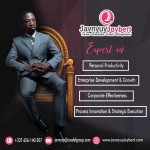 5 Steps to Becoming an Adaptable and Persistent Entrepreneur
5 Steps to Becoming an Adaptable and Persistent Entrepreneur
Tags: Business Continuity, Entrepreneurship, Management
 Javnyuy Joybert’s 5 Steps to Developing Self-Discipline as an Entrepreneur
Javnyuy Joybert’s 5 Steps to Developing Self-Discipline as an Entrepreneur
Tags: Business Continuity, Entrepreneurship, Startups
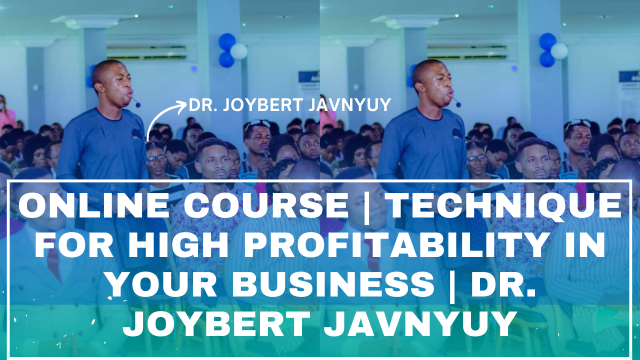 Technique for High Profitability in Your Business | Dr. Joybert Javnyuy
Technique for High Profitability in Your Business | Dr. Joybert Javnyuy
Tags: Business Strategy, Entrepreneurship, International Relations
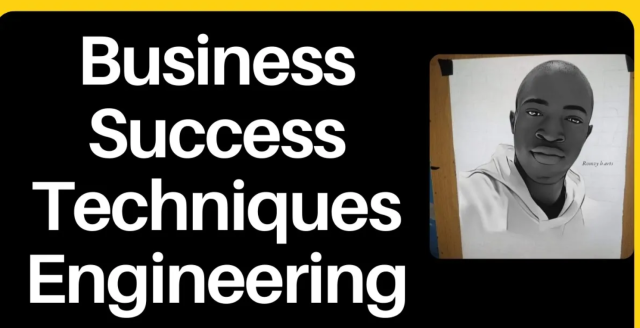 Business Success Engineering Techniques with Dr Joybert Javnyuy
Business Success Engineering Techniques with Dr Joybert Javnyuy
Tags: Business Strategy, Entrepreneurship, Startups
 3 Types of Risk, How to Manage Risks & Succeed in Life, Career & Business Dr. Joybert Javnyuy
3 Types of Risk, How to Manage Risks & Succeed in Life, Career & Business Dr. Joybert Javnyuy
Tags: Business Continuity, Business Strategy, Leadership
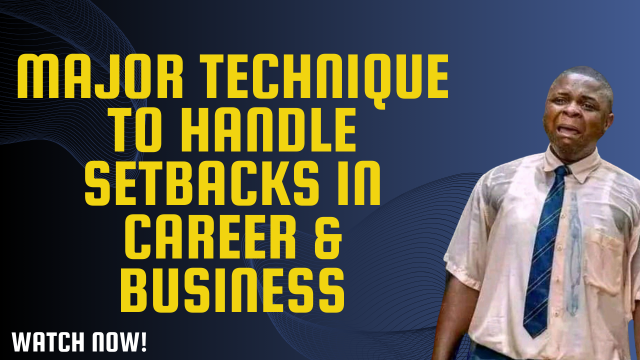 MAJOR Technique to Handle Setbacks in Career & Business - Javnyuy Joybert
MAJOR Technique to Handle Setbacks in Career & Business - Javnyuy Joybert
Tags: Coaching, Entrepreneurship, Leadership
 CRITICAL Tool for Career & Business Growth | Dr. Javnyuy Joybert
CRITICAL Tool for Career & Business Growth | Dr. Javnyuy Joybert
Tags: Business Continuity, Entrepreneurship, Leadership
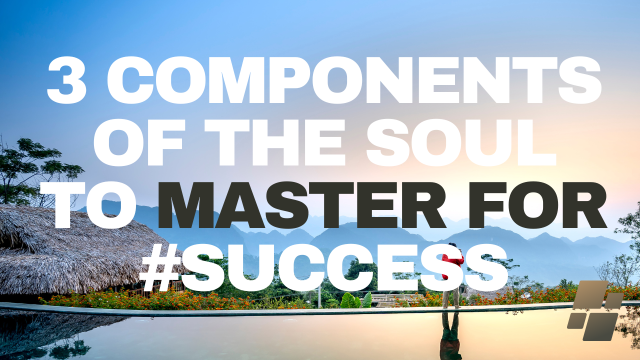 FREE Online #Course || 3 Components of the Soul to Master for #Success - Javnyuy Joybert
FREE Online #Course || 3 Components of the Soul to Master for #Success - Javnyuy Joybert
Tags: Business Continuity, Coaching, Leadership
 How To F.I.N.I.S.H ALL You START in 2024 & Beyond || Finishing Framework with Javnyuy Joybert
How To F.I.N.I.S.H ALL You START in 2024 & Beyond || Finishing Framework with Javnyuy Joybert
Tags: Business Continuity, Coaching, Leadership
Tags: Business Continuity, Business Strategy, Change Management

Tags: Business Strategy, Entrepreneurship, Leadership

Tags: Careers, Coaching, Entrepreneurship

Tags: Careers, Coaching, Leadership
 Poverty Indoctrination in Africa Through the Education System by Dr. Joybert Javnyuy
Poverty Indoctrination in Africa Through the Education System by Dr. Joybert Javnyuy
Tags: EdTech, Education, Entrepreneurship
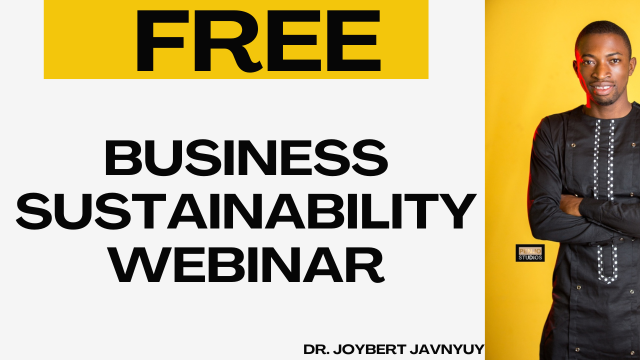 How to Achieve Business Sustainability Through Market Segmentation by Dr. Joybert Javnyuy
How to Achieve Business Sustainability Through Market Segmentation by Dr. Joybert Javnyuy
Tags: Business Continuity, Business Strategy, Entrepreneurship
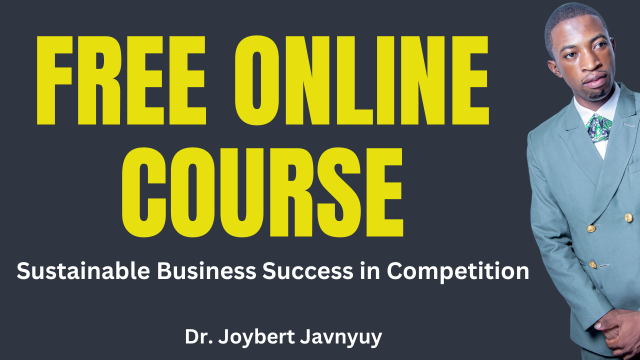 FREE ONLINE COURSE || Achieving Sustainable Success #Business in a Competitive Marketplace
FREE ONLINE COURSE || Achieving Sustainable Success #Business in a Competitive Marketplace
Tags: Business Continuity, Business Strategy, Entrepreneurship
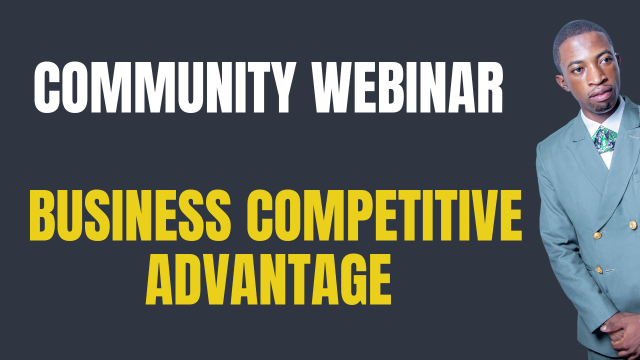 Business Competitive Advantage: Area of Excellence Factor by Dr. Joybert Javnyuy
Business Competitive Advantage: Area of Excellence Factor by Dr. Joybert Javnyuy
Tags: Business Continuity, Business Strategy, Entrepreneurship

Tags: Business Strategy, Coaching, Entrepreneurship

Tags: Careers, Entrepreneurship, Leadership

Tags: Coaching, Entrepreneurship, Personal Branding
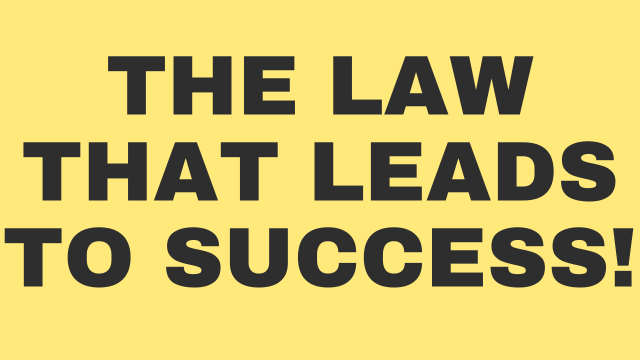 The Foundation Law that Leads to #SUCCESS - Javnyuy Joybert
The Foundation Law that Leads to #SUCCESS - Javnyuy Joybert
Tags: Business Strategy, Coaching, Entrepreneurship

Tags: Coaching, Entrepreneurship, Leadership

Tags: Coaching, Entrepreneurship, Leadership

Tags: Coaching, Entrepreneurship, Leadership

Tags: Business Continuity, Coaching, Entrepreneurship

Tags: Coaching, Leadership, Personal Branding
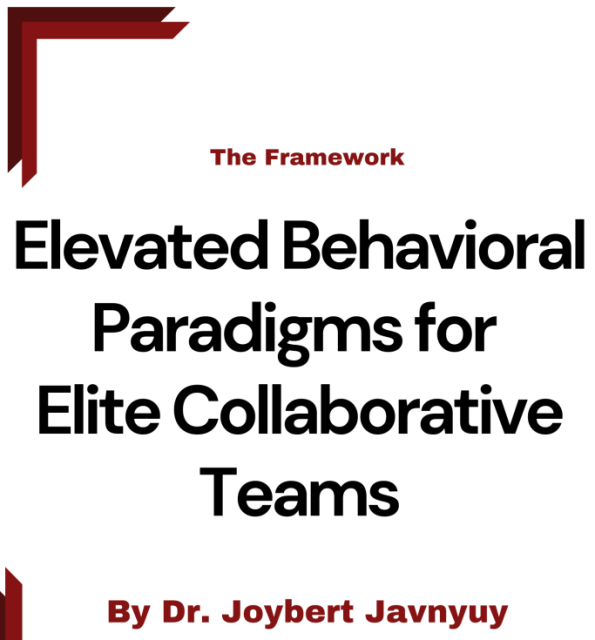 Elevated Behavioral Paradigms for Elite Collaborative Teams by Dr. Joybert Javnyuy
Elevated Behavioral Paradigms for Elite Collaborative Teams by Dr. Joybert Javnyuy
Tags: Coaching, Leadership, Management
 How to Build Power for Career & Business Success by Dr. Joybert Javnyuy
How to Build Power for Career & Business Success by Dr. Joybert Javnyuy
Tags: Business Strategy, Coaching, Leadership

Tags: Business Strategy, Coaching, Leadership

Tags: Change Management, Coaching
 How to Craft Solutions That Outshine Existing Solutions in Your Target Market by Dr. Joybert Javnyuy
How to Craft Solutions That Outshine Existing Solutions in Your Target Market by Dr. Joybert Javnyuy
How to Craft Solutions That Outshine Existing Solutions in Your Target Market by Dr. Joybert Javnyuy
Over the years, through my work in startup business consulting, I have collaborated with numerous incubators and accelerators in Cameroon, Nigeria, Ghana, Kenya, South Africa, and other nations.
At The Center for Entrepreneurship, Leadership & Business Management Development Africa, which I founded in 2012 to provide startup and enterprise development training and solutions to African startups, I have gained practical experience working with diverse startups from various industries.
One of the most critical phases every startup must go through and get right to a certain extent is validating the problem they aim to solve with their business.
When leading problem validation and idea validation sessions with startup founders, one of the core questions I always want us to deliberate upon is, "Why are existing products or services (solutions) insufficient, and what makes you feel that your solution will stand out in the eyes of the target market?"
Processing and understanding this question and being able to obtain real-time findings will bring a significant change in your startup process. Additionally, this step helps in refining the business model and ensures that the startup is addressing a genuine need, which is crucial for long-term success. Moreover, engaging with potential customers early on can provide invaluable feedback that can shape the product development and marketing strategies.
The inadequacy of current solutions typically stems from their inability to fully address the evolving needs and pain points of consumers. This can manifest in various forms:
- Outdated technology
- Lack of user-centric features
- Poor customer service
- Simply the failure to adapt to changing market trends.
When it comes to building a startup, the foundation of a successful business often lies in identifying gaps within existing products or services and proposing innovative solutions.
Understanding these insufficiencies involves deep market research and an empathetic approach to customer feedback. Entrepreneurs must immerse themselves in the experiences of their potential users to uncover these hidden gaps.
Once these gaps are identified, the next step is to conceptualize a solution that not only fills these voids but also offers a distinct value proposition.
Here is one truth, recognizing the shortcomings of existing products or services and addressing them with a novel, user-centric approach is key to standing out in a competitive market as a startup founder.
Blessings
Dr. Joybert Javnyuy
www.joybert.com
Tags: Entrepreneurship, Lean Startup, Startups
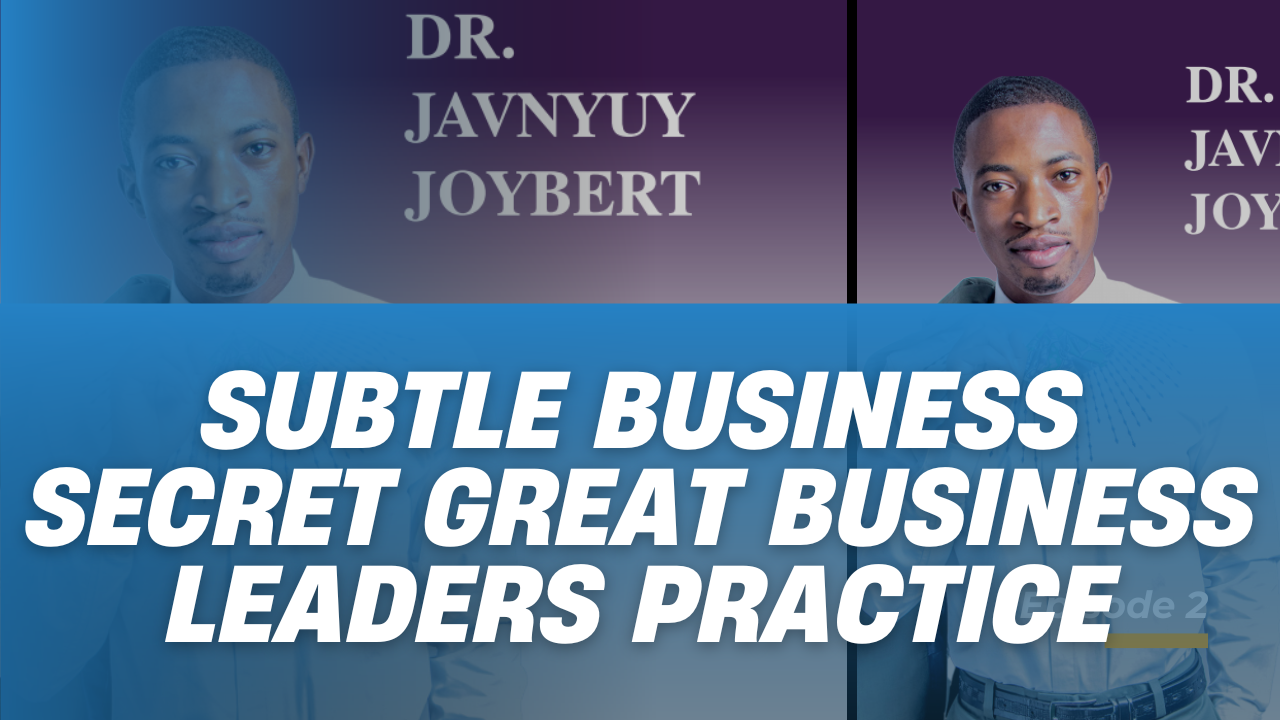 Subtle Business Secret Great Business Leaders Practice – Dr. Joybert Javnyuy
Subtle Business Secret Great Business Leaders Practice – Dr. Joybert Javnyuy
Let me tell you one subtle business secret that great business leaders know and practice.
You cannot make great business decisions without metrics.
Metrics are at the heart of great decision making in business. They provide the data needed to;
- Evaluate performance
- Identify trends and
- To make informed choices
In every aspect of business from value creation to production, marketing, and sales and every other area of business, metrics play a crucial role.
They help you understand what is working and what is not working. For instance, in marketing, metrics like customer acquisition cost and conversion rates are essential. They will tell you as a business person how effective your campaigns are and where you should allocate resources.
What about EP? Employee performance (EP) is equally important. They highlight areas where staff excel and where additional training might be needed. By the way if you need staff training contact me - Dr. Joybert Javnyuy.
This data driven approach ensures that decisions about promotions, hiring, and development are based on solid evidence and not feelings.
When it comes to expansion, metrics can help you determine the best markets to enter and the right time to do so. They provide insights into market demand, competition and potential profitability. This minimizes risks and maximizes the chances of success.
Technology in this age is another area where metrics are critical. They can show you how well your systems are performing and where improvements are necessary. Metrics can also help you measure the return on investment for new technologies, ensuring that you are getting the most out of your tech budget and resources.
You see, business is a game of metrics. Without them, decisions are based on gut feelings and assumptions which can lead to costly mistakes and failures. Using metrics, you make decisions that are informed, strategic, and drive success.
Hear me now, metrics are the backbone of effective business decision making. They provide the insights needed to navigate the complexities of modern business. By prioritizing metrics, you ensure that every decision you make is grounded in data and not feelings.
What stood out for you? Share your thoughts.
Dr. Joybert Javnyuy
www.joybert.com
Tags: Business Continuity, Business Strategy, Entrepreneurship
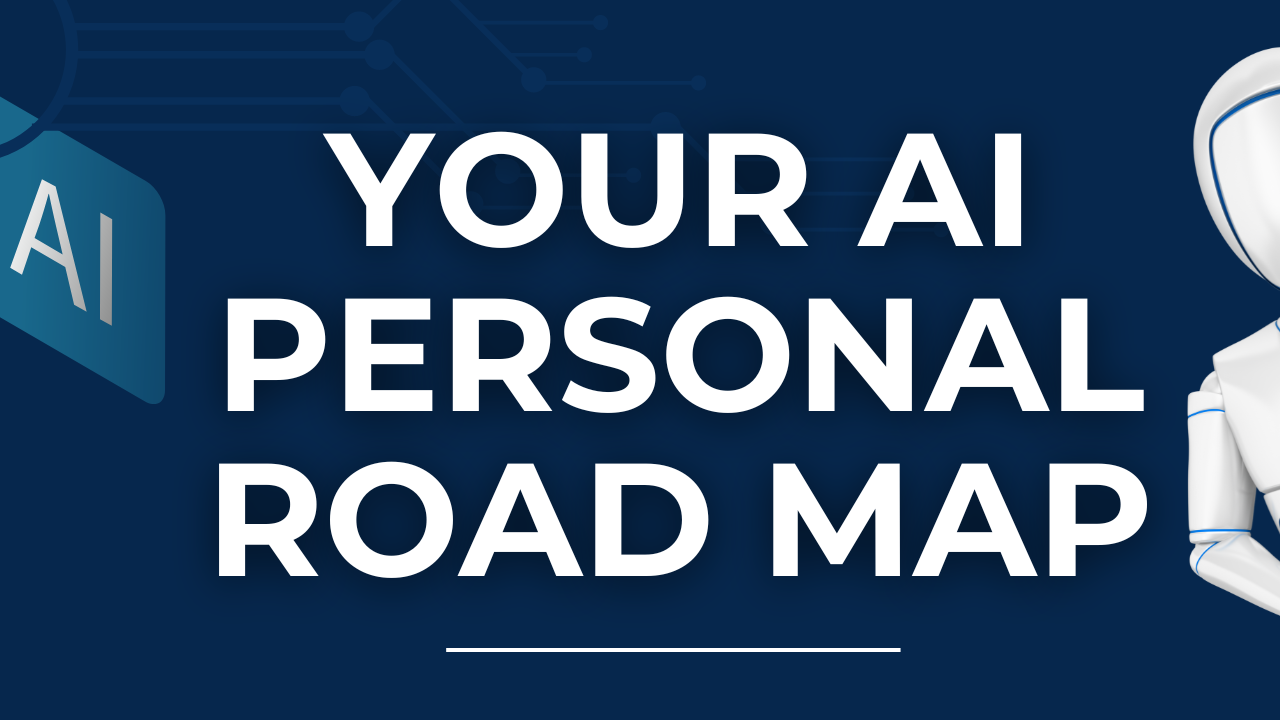 How to Create Personal AI Road Map: Overcome Fear of AI - Dr. Joybert Javnyuy
How to Create Personal AI Road Map: Overcome Fear of AI - Dr. Joybert Javnyuy
So many people have been worried that AI will take their jobs or wipe out their professions.
Since AI became so popular, in leading sessions with teams and employability sessions with university students and job seekers, I always say that AI will not replace anyone; it is people who know how to use AI that will replace people who are ignorant.
While speaking with someone a few days ago, I said the best way out for you is to create a personal AI roadmap. If you run a business, create an AI roadmap for your business. The truth is anyone or any business not doing this will be left behind.
AI is already and will continue to be a major driver. Being passive about it will lead to chaos in a few weeks, months, and years.
I told someone, do not be worried about AI; develop foresight and proactive actions about AI.
Worry will not change anything, but learning, unlearning, and relearning will change so much and position you for better success.
Here is a personal AI sample road map I suggest for you reading this;
Step 1: Understand AI Basics
Learn the Fundamentals: Start with online courses, articles, and videos to understand what AI is and how it works.
Key Concepts: Focus on basic concepts like machine learning, neural networks, and data science.
Step 2: Identify Relevant AI Tools
Research AI Tools: Identify AI tools and applications relevant to your field. For example, marketers can explore tools like chatbots and predictive analytics, while designers might look into AI-driven design software.
Stay Updated: Follow AI news and updates through tech blogs, newsletters, and podcasts.
Step 3: Develop Practical Skills
Hands-On Practice: Engage with practical AI applications.
Projects and Challenges: Participate in AI projects or challenges on websites like GitHub or competitions on Kaggle to build real-world experience.
Step 4: Integrate AI into Your Work
Apply AI Solutions: Start integrating AI tools into your daily work. For instance, use AI for automating repetitive tasks, improving customer service, or analyzing data trends.
Experiment and Adapt: Test different AI tools and methods, and adapt them to fit your needs and enhance productivity.
Step 5: Continuous Learning and Networking
Join AI Communities: Become part of AI communities and forums like LinkedIn groups. Networking with professionals can provide insights and opportunities.
Ongoing Education: Regularly update your knowledge with advanced courses and certifications. Attend webinars, workshops, and conferences to stay informed about the latest AI advancements.
Having the right foundation in AI will not happen overnight.
Follow the above roadmap, and give yourself time and you will move from being worried and passive about AI to being proactive and leveraging AI to advance the work you do.
Now, get to work.
Any questions for me?
Blessings
Dr. Joybert Javnyuy
Tags: AI, Business Strategy, Digital Transformation
 2 Things You Must Get Right As An Expert In This Digital Age - Dr. Joybert Javnyuy
2 Things You Must Get Right As An Expert In This Digital Age - Dr. Joybert Javnyuy
2 Things You Must Get Right As An Expert In This Digital Age
I began my training, consulting, and coaching career in a semi-urban town (Kumbo-Nso) in the North West Region of Cameroon close to 15 years ago. At the time, internet access was not as prevalent as it is today, nor was access to information.
Over time, I have grown and have traveled, worked, and lived across global megacities like Dubai, Washington, Istanbul, Houston, Johannesburg, and more, where there is high tech and massive access to information.
I can tell you from firsthand experience, it is more difficult to make meaningful connections now than it used to be because of the digital age.
People are still craving meaningful connections. I even believe that some Gen Zs and especially Gen Alpha, who have been entirely born in the 21st century, do not even know what genuine, meaningful human connections mean. People born into the internet age, and most parents babysit them with iPads and tech in general, lol.
Here is what I am saying:
I believe that any expert in this dispensation who will create meaningful change in the lives of people must know how to build and maintain meaningful relationships.
2 things I believe we should be doing:
1. Give people the opportunity to connect with you:
What I mean is, break down barriers as much as you can. Instead of using too many apps, imagine having a system where you step in and offer coffee and a physical meeting. Give people the opportunity to connect with you and be proactive in connecting with them. This should be done from a place of intentionality.
2. Give people genuine, human experience solutions:
Sometimes, I call this empathized solutions. Going on ChatGPT and asking for a solution and talking with a fellow human to get the same solutions from someone who has walked that path is totally different and more powerful than anything else. Human experiences will always be highly sought after and irreplaceable.
The question we should be asking ourselves is:
- How easy is it for people to connect with you, and how proactive are you in connecting with others?
- What human experiences have you gone through in your life that you use to build and share solutions with fellow humans?
What other changes do we need to make?
Blessings!
Dr. Joybert Javnyuy
Tags: Coaching, Entrepreneurship, Future of Work
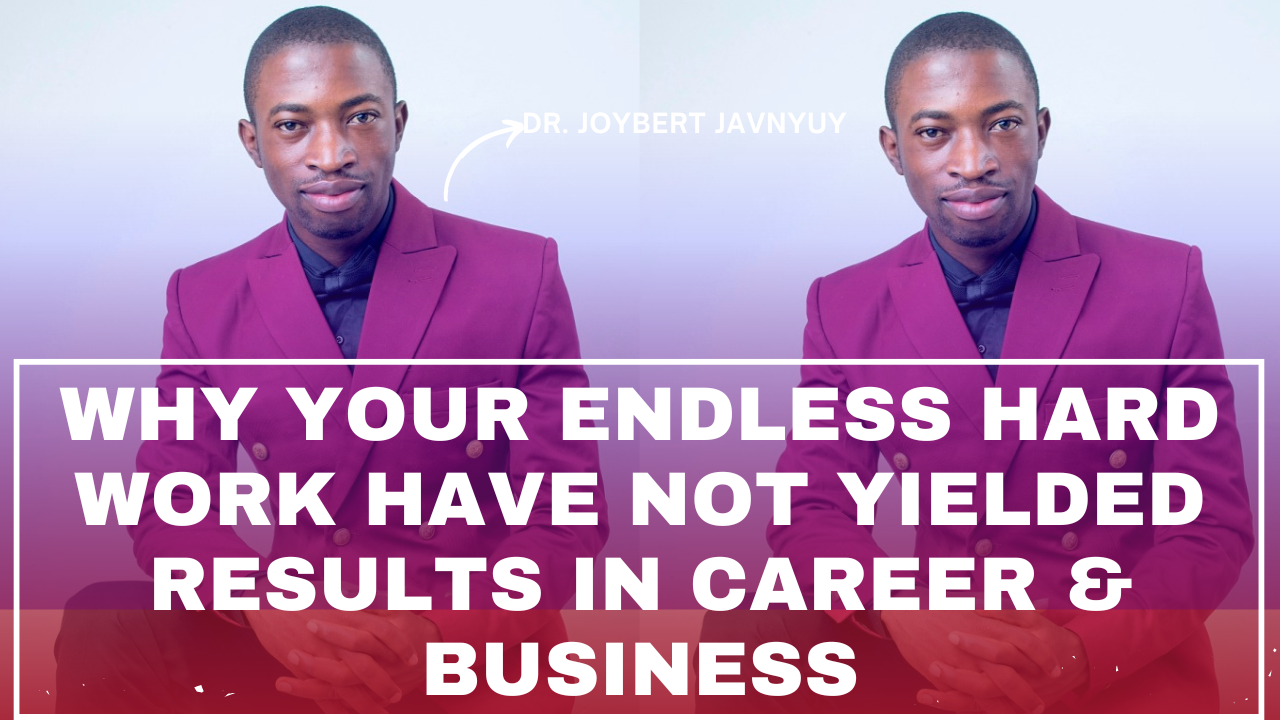 Why Your Endless Hard Work Have Not Yielded Results in Career & Business - Dr. Joybert Javnyuy
Why Your Endless Hard Work Have Not Yielded Results in Career & Business - Dr. Joybert Javnyuy
Why Your Endless Hard Work Have Not Yielded Results in Career & Business - Dr. Joybert Javnyuy
A young man reached out to me and asked for coaching, and in one of his messages, he said, "I have done everything I know and yet nothing is moving in my business."
In the course of talking with him, we discussed a few things regarding his business, and one of the things we spoke about is what I want to share with you today.
If you consistently work hard on something, put in your best effort, and yet the results do not commensurate with the hard work you are putting in, there is something you do not yet know about that thing you are working on that you need to know.
If you consistently work hard, give it your all, and still don't see the results that match your efforts, there is something missing in your understanding of the task at hand.
Hard work (diligent work), is a reliable force that consistently yields results. It's irreplaceable.
Before you argue that smart work is better than hard work, consider that smart work combines the right knowledge and tools with hard work to achieve desired outcomes. Having the tools and knowledge but not being willing to put in the necessary effort isn't smart work; it is laziness.
Here are some questions to ponder if you are working hard but not seeing the right results:
Are you diligently working on your career but not seeing any progress? Ask yourself, what do I need to learn about career growth that I might not know yet?
Are you putting effort into your business, but growth and profitability remain difficult? Consider what insights you might be missing about enhancing business growth and profitability.
Hard work should be fulfilling, not a struggle.
It becomes enjoyable when it leads to results, and burdensome when it doesn’t.
I often say, "The quality of the questions you ask determines the quality of the results you get in life & career."
Working hard without direction in your career or business will not take you far.
Instead, seek to understand the nuances of your work, ask the right questions, and be ready to adapt your strategies.
This will not only enhance your work but will also pave the way to greater success and satisfaction.
Before I go, here are some questions I encourage you ask before you continue working hard;
- What specific goals am I working towards in my career and business?
- What are the key performance indicators (KPIs) for my role/business, and how do they measure up?
- Have I sought feedback from mentors, peers, or customers recently?
- Am I prioritizing my tasks effectively to maximize productivity and impact?
- What new skills or knowledge do I need to acquire to advance further?
- How well am I networking within my industry?
Which of the above questions do you need to sit and seek the right way out?
Leave me a comment if you were blessed with this.
Blessings!
Dr. Joybert Javnyuy
---------------------
When I am not delivering business & corporate training, or doing some business analysis or consulting, I am Helping Professionals & Entrepreneurs Like You Build & Monetize Thought Leadership, Attention & Credibility for Global Opportunities Through My Signature Frameworks. Would you want me to speak in your upcoming event/community? Or podcast guest? With my experience of speaking across 18+ nations, I bring some style on stage. DM or email javnyuyjoybert22@gmail.com
Tags: Business Strategy, Coaching, Entrepreneurship
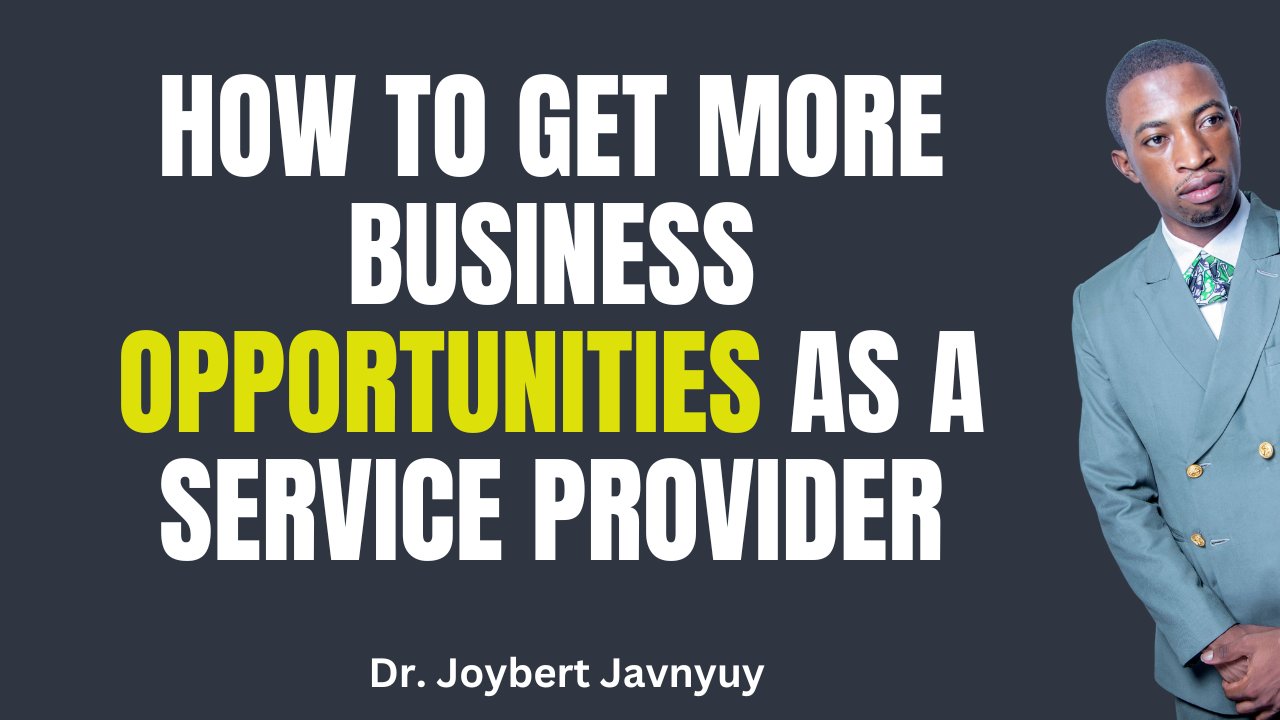 How to Get More Business Opportunities as a Service Provider by Dr. Joybert Javnyuy
How to Get More Business Opportunities as a Service Provider by Dr. Joybert Javnyuy
I recently had the opportunity of speaking at an online event organized by a vibrant community of West African professionals, predominantly from Nigeria and Ghana.
This community is made up of digital service providers specializing in a diverse range of services from website building and app development to social media management and graphic design.
During my session, I touched on various topics, but there is one particular insight I would like to share with you.
I told the audience, "As a service provider, if you ensure that you have developed your skills to offer the right value, possess the confidence to showcase this value, and have the courage to negotiate, you will always close deals and get more business opportunities."
Why did I emphasize this point?
In my experience, many professionals are passionate but lack the required value needed to make a significant impact in the lives of their targeted clients.
Some are skilled, but if they cannot effectively communicate the worth of their services, their potential remains untapped.
Others possess the right skills and can even articulate their value, yet they struggle when it comes to pricing. They lack the boldness to ask for what they truly deserve, often undervaluing their work in a competitive market.
Some professionals have the right skills and confidence but lack the negotiation prowess needed to seal deals that reflect their true value. Moreover, negotiation is an art that not all possess. - Dr. Joybert Javnyuy
Here is my conclusion;
To thrive as a service provider in the digital age, one must develop a multifaceted approach:
- Refining skills continuously
- Confidently projecting one's value
- Courageously asking for rightful compensation, and
- Mastering the art of negotiation.
This comprehensive strategy ensures not just survival but prosperity in the growing marketplace.
I believe when you embrace this simple and yet profound process, you can transform your career, moving from merely being a participant in the digital economy to becoming a formidable player.
Let me know, which of these speaks to you? Where will you be making changes?
Cheers
Dr. Joyert Javnyuy
Tags: Business Strategy, Entrepreneurship, Personal Branding
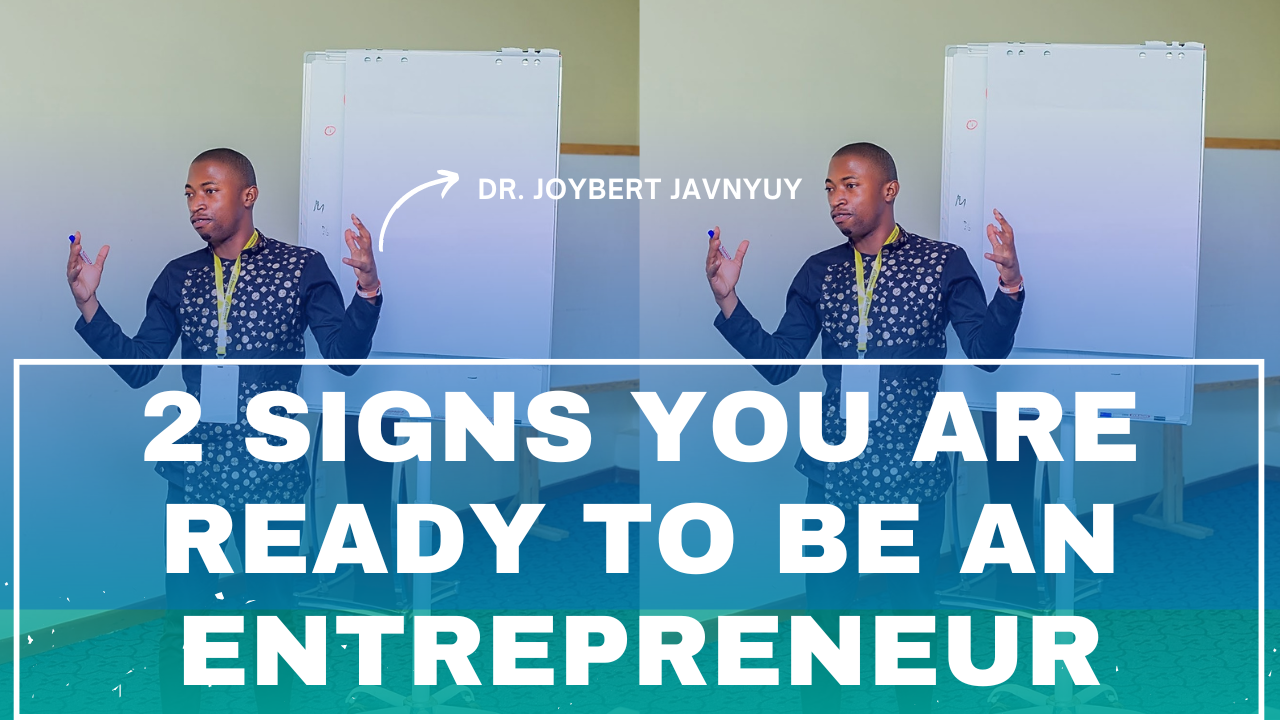 2 Signs You Are Not Ready to be an Entrepreneur by Dr. Joybert Javnyuy
2 Signs You Are Not Ready to be an Entrepreneur by Dr. Joybert Javnyuy
If you are considering stepping into entrepreneurship, there are a few signs that might suggest you are not quite ready.
For one, if the thought of looking foolish terrifies you, you might want to pause.
If the thought of being publicly embarrassed terrifies you, you might want to wait.
The path of an entrepreneur is paved with moments where you will need to step out of your comfort zone and possibly make mistakes in full view of others.
Becoming an entrepreneur isn't just about having a brilliant idea or even the right resources.
It's about being ready to face certain emotional challenges that are part and parcel of the startup journey.
It’s natural to fear failure.
No one enjoys the feeling of falling short, especially when stakes are high. But as an entrepreneur, you will face moments where your ideas might not pan out as expected.
The key isn’t to avoid failure but to learn from it and keep moving forward.
Remember, every successful entrepreneur you can think of started as a beginner.
Think of Aliko Dangote, Tony Elumelu, Bill Gates, Elon Musk, and Mark Zuckerberg. Each of them had to start somewhere, likely making mistakes and facing setbacks along the way.
What sets them apart is their resilience and their willingness to persist despite potential embarrassment and failure.
To thrive as an entrepreneur, you must embrace these discomforts.
Consider them not as roadblocks but as stepping stones. With each challenge, you learn a bit more about running a business, about yourself, and about how to handle adversity.
This mindset doesn’t just help you survive the entrepreneurial journey; it helps you excel in it.
The truth is, entrepreneurship is not for everyone. It requires a certain tolerance for uncertainty and discomfort.
But if you can make peace with potentially looking foolish and view each setback as an opportunity to learn and grow, you're not just ready to start a business, you are ready to lead it to success.
So, take a moment to reflect.
If you can see the value in every beginner’s mistakes and still feel excited about forging ahead, then perhaps you are more prepared than you think.
After all, every master was once a beginner. Just as they did, you have the chance to start, fail, learn, and eventually, succeed.
Blessings!
Dr. Joybert Javnyuy
Tags: Entrepreneurship, Lean Startup, Startups
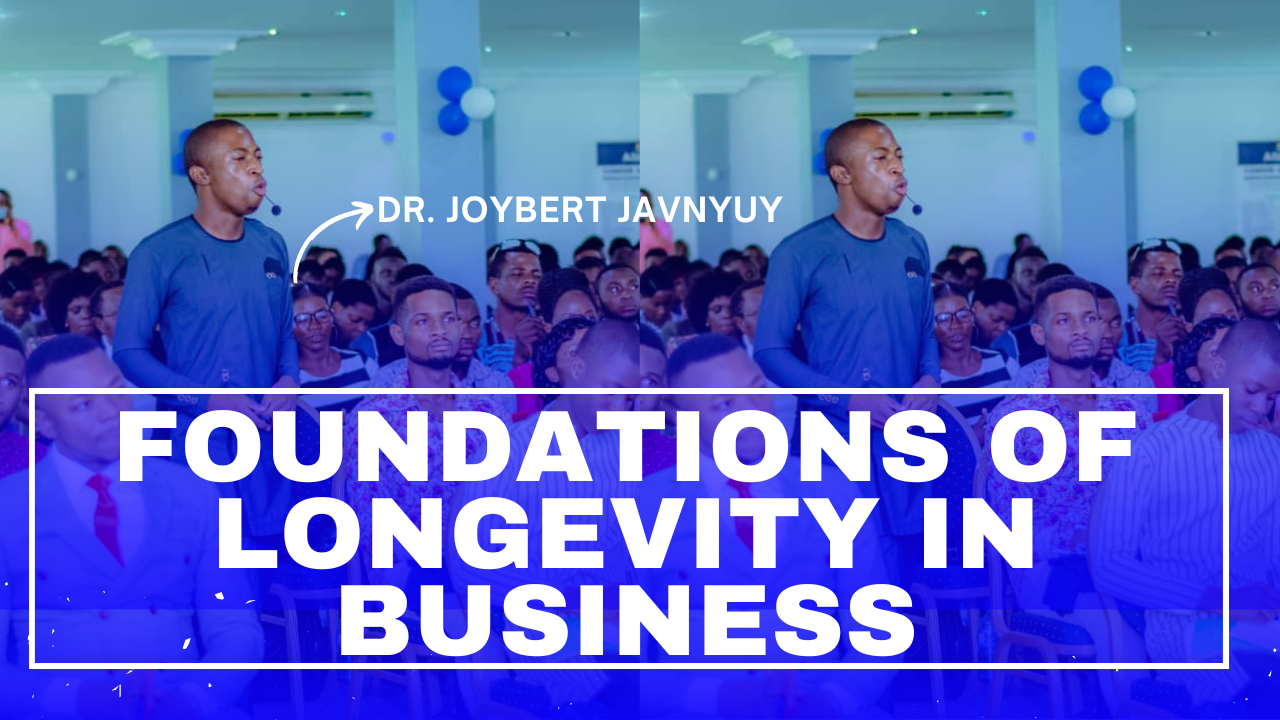 The Foundations of Longevity in Business - Dr. Joybert Javnyuy
The Foundations of Longevity in Business - Dr. Joybert Javnyuy
The Foundations of Longevity in Business - Dr. Joybert Javnyuy
Back in late 2022, my office in Douala, Cameroon, turned into a lively hub where young entrepreneurs gathered regularly.
We would meet to talk, share ideas, and figure out how we could help each other grow.
These meetings were full of life and very hands-on, which made everyone feel like they were part of something special. We often ended up sharing useful things like where to find funding and how to tackle common business challenges.
During one of these sessions, I shared a thought that really resonated with the group.
I said, "Anyone can launch a business, but only those with the right mindset, expertise, and leadership skills can build a company that will thrive."
This came from my own experiences and observations in the business world. It's about more than just starting something; it’s about building it in a way that stands the test of time.
Let me break down the quote in a few words.
Why the right mindset?
The foundation of any successful business lies in the mindset of its founder. A growth-oriented mindset characterized by resilience, adaptability, and a commitment to continuous learning is essential. Startup founders with the right mindset see challenges as opportunities to learn and grow rather than insurmountable obstacles.
Why Expertise?
This is broad however, while passion is important, it must be underpinned by solid expertise in the business’s core areas. This includes understanding the market, knowing the customer, and having the technical know-how to deliver products or services effectively. Startup founders should either possess this expertise or recognize gaps in their knowledge and fill them by hiring the right people or seeking further education.
Why leadership?
This is critical. Leadership is the glue that holds a company together as it grows. Effective leadership involves setting a clear vision, communicating it effectively to the team, and inspiring people to work together towards common goals.
Good leaders foster a culture of transparency and trust, empower their employees, and promote accountability. As startups typically work with limited resources and under significant pressure, the ability to lead effectively can make a significant difference in employee retention and satisfaction, which in turn impacts productivity and innovation.
What would you add to this?
Blessings!
Dr. Joybert Javnyuy
Tags: Business Strategy, Entrepreneurship, Startups
 The Ignored Soft Skill That Can Destroy Your Life & Career as a Leader - Dr. Joybert Javnyuy
The Ignored Soft Skill That Can Destroy Your Life & Career as a Leader - Dr. Joybert Javnyuy
The Ignored Soft Skill That Can Destroy Your Life & Career as a Leader.
In my entrepreneurial and professional journey, I have the privilege to lead and serve in different leadership capacities. I have learned a thing or two from my practical experience.
In leadership, especially entrepreneurial leadership, patience is not just a virtue; it is a strategic advantage.
Oftentimes, in entrepreneurship, speed is an advantage however, hasty decisions often miss crucial details, while measured responses benefit from deeper insight.
Here is my belief, leaders who pause before responding demonstrate control not only over their decisions but also over their emotions. This restraint can be transformative, both personally and professionally.
Imagine you're confronted with a tough decision or a critical comment. The instinct might be to react immediately, but there's immense power in pausing.
It tells your team or clients that you value thoughtful decisions over quick fixes.
This practice of pausing allows you to gather more information, consult more broadly, and consider the implications of your actions more fully.
It’s about crafting responses that are not only correct but also considerate and constructive.
I always say, "There is nothing wrong telling someone to give you time to think about something."
Personally as a Kingdom person, I believe and rely strongly on the leadership of the Holy Spirit in decision making. My team will always often hear me say, "Give me time to pray about it."
You see, pausing to think, meditate or pray provides a moment of reflection that is essential in today’s fast-paced world.
It allows leaders like us to align their actions with their values and the larger goals of their organization. It shows that they are not swayed by the heat of the moment but guided by a consistent ethical compass.
This does more than improve decision-making; it enhances your relationships.
How does this enhance relationships? You may be asking.
You see, when people see a leader who reflects before reacting, they see someone who respects and considers the perspectives of others. This builds trust and respect, foundational elements of successful teams.
Embracing a slower response time might seem counterintuitive in a world that values speed.
However, for those in leadership, it is a clear path to more thoughtful, ethical, and effective leadership.
It is a simple strategy with profound impacts on your leadership journey and beyond.
Do you agree with me?
Blessings!
Dr. Joybert Javnyuy
Tags: Business Continuity, Leadership, Management
 The biggest nightmare of new or emerging thought leaders by Dr. Joybert Javnyuy
The biggest nightmare of new or emerging thought leaders by Dr. Joybert Javnyuy
The biggest nightmare of new or emerging thought leaders.
Take a moment.
You see, for emerging thought leaders, obscurity is a formidable barrier. I have been there.
Obscurity is the significant disconnect between possessing transformative ideas and the ability to influence public or professional settings. This disconnection not only impedes the spread of valuable insights but also costs emerging thought leaders career opportunities, growth in their industries, and the fulfillment that comes with making an impact.
4 main pain points of obscurity;
- Limited Influence: Limited influence restricts your ability to impact discussions and decisions within your industry.
- Missed Opportunities: Obscurity can lead to missed opportunities for collaborations, speaking engagements, and partnerships that are crucial for growth.
- Reduced Credibility: Being less known can often be equated with having less credibility. New thought leaders might find it difficult to be taken seriously by peers and potential followers if they haven't yet established a strong presence.
- Economic Impact: Without recognition, it’s harder to monetize expertise through books, courses, consulting, or speaking engagements.
The 4-Step Basic Process to Overcome Obscurity
- Collaborate with Established Leaders: Reach out to existing thought leaders for collaboration opportunities. Co-authoring articles, appearing on podcasts, or conducting joint seminars are excellent ways to gain immediate exposure and credibility.
- Develop a Strong Online Presence: Establishing a robust online platforms is crucial. From social media to websites, get it right. It takes some time and investment.
- Communicate with Clarity: Develop the ability to express your ideas clearly and compellingly to resonate with your audience using different channels. Add a touch of storytelling.
- Creating Local Impact: Engage with local communities. This encourages deeper connections and can turn local followers into advocates for your message. For example, people in your church, people in your neighborhood, local community library and more.
- Highlight Success Stories: Share testimonials or success stories from within your community. This not only provides proof of impact but also celebrates community achievements.
For thought leaders breaking out of obscurity, the future is bright. With consistent effort, your ideas will not only reach but also resonate with a wider audience.
This expanded influence can lead to more speaking engagements, consultancy opportunities, and a prominent voice in shaping discussions in your field.
As your impact grows, so too will your ability to effect change, driving innovation and inspiring others. The journey from obscurity to recognition is challenging but deeply rewarding, promising a future where your ideas pave the way for new thinking and progress.
Dr. Joybert Javnyuy
www.joybert.com
Tags: Coaching, Entrepreneurship, Leadership
 This is Destroying Many in This Generation. Are You Involved? – Dr. Joybert Javnyuy
This is Destroying Many in This Generation. Are You Involved? – Dr. Joybert Javnyuy
This is destroying so many Millennials & Gen Zs. Are you involved?
Appearances often overshadow substance, we find ourselves at a crossroads between what feels good and what truly is good.
You can refer to this as vanity metrics.
Let me explain in my own words what vanity metrics are. My personal view of vanity metrics involves focusing on superficial aspects, such as social media popularity without real substance, and valuing material things like fancy cars and clothes, using these to measure your success and significance in life. It is time to stop focusing on things that look impressive on the surface but don’t truly reflect the effectiveness or depth of an endeavor or your purpose.
It is time to go beyond vanity metrics. Go for significant metrics.
It’s time to shift our focus towards significant metrics, which offer a deeper, more insightful analysis of performance and impact. Significant metrics allow us to measure what truly matters, guiding better decision-making and strategy development.
To lead a more productive and purposeful life, it’s time we shift our focus to significant metrics those that genuinely reflect our personal growth, well-being, and fulfillment. These metrics provide a more authentic gauge of our life’s quality and achievements. Here are ten examples of personal significant metrics that can guide individuals towards a more meaningful existence:
Personal Growth: Measuring the steps taken towards self-improvement, such as learning new skills, reading books, or attending workshops, indicating continuous personal development.
Quality of Relationships: Evaluating the depth and meaningfulness of personal relationships, including family, friends, and partners, to ensure a supportive and enriching social life.
Physical Health: Tracking metrics related to physical well-being, such as exercise frequency, nutritional balance, and sleep quality, to maintain a healthy body.
Mental Well-being: Monitoring indicators of mental health, including stress levels, emotional stability, and happiness, to ensure a balanced and positive state of mind.
Financial Security: Measuring one’s progress towards financial goals, savings rate, and investment growth, ensuring a stable and secure financial future.
Contribution to Community: Gauging involvement in community service or volunteering, reflecting a commitment to giving back and making a difference.
Work-Life Balance: Assessing the equilibrium between professional obligations and personal life, ensuring neither is neglected in pursuit of the other.
Achievement of Goals: Tracking progress towards personal and professional goals, celebrating milestones, and adjusting strategies as necessary to achieve success.
Personal Happiness: Measuring overall satisfaction and joy in life, reflecting on experiences, accomplishments, and moments of happiness to gauge well-being.
Resilience: Evaluating one’s ability to bounce back from setbacks, adapt to change, and overcome challenges, indicating strength and flexibility in facing life’s uncertainties.
By focusing on these significant metrics, individuals can cultivate a life that is not only productive but also deeply fulfilling.
It is time to go beyond vanity metrics. Go for significant metrics.
Blessings,
Dr. Joybert Javnyuy
Tags: Coaching, Leadership, Personal Branding
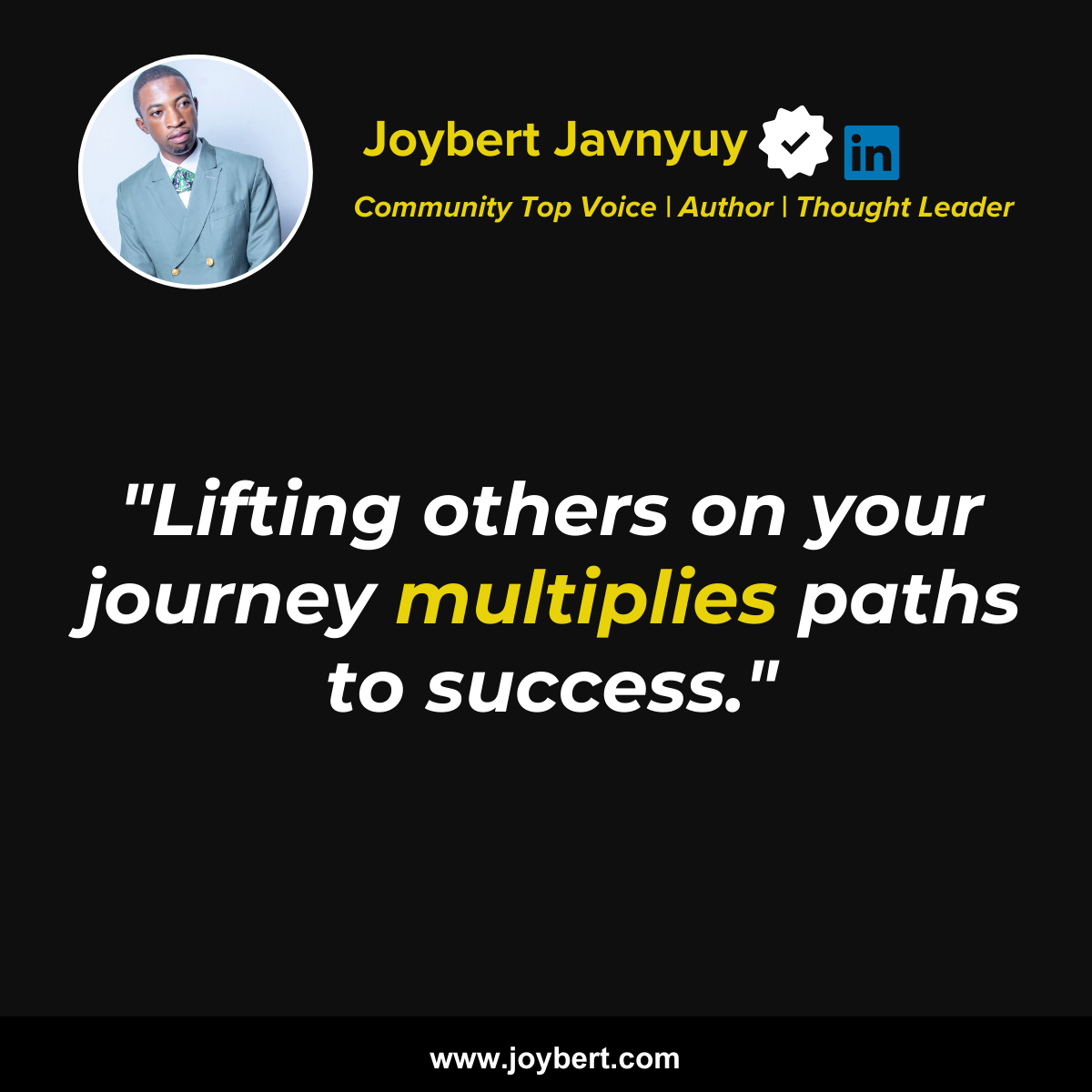 Is This How to Attain Sustainable Success? - Dr. Joybert Javnyuy
Is This How to Attain Sustainable Success? - Dr. Joybert Javnyuy
I was reading an article in which one of the world's most successful venture capitalists said something critical.
He said, "If you’re starting out, stick to what you know. It's wise to focus on your area of expertise rather than venturing into sectors that you aren’t familiar with."
I think many people, after 5 to 10 to 20 years and even beyond, find it difficult to achieve sustainable success because they do not start out and stick to what they know.
They quickly shift focus and do other things, mostly because of trends, or because they saw someone succeeding in that area, or because they just lack the consistency to master a particular path.
Check anyone who is doing great in any sector, go track their history, and you will notice years and years of hard work in that path. Focus is not just about ignoring distractions; it's about dedicating your energies to become the best in your field. This dedication to focus is what sets them apart from the rest.
What is the way forward?
If you are starting out or are just in the early years of your journey, do the following:
- Identify what you know (if you are not skillful at anything yet, set out to pick a sector and become highly skilled in that sector).
Note: Identifying what you know or what you have the potential to excel at is the first step. It requires a deep dive into your interests, skills, and passions to discover where your expertise truly lies.
- Stick to what you know and focus on improving to be among the top 10% in that sector.
Note: Mastery is not achieved overnight. It involves continuous learning, practice, and the relentless pursuit of excellence in your chosen field.
- Find ways to scale what you know and keep doubling down on your impact.
Note: This might involve leveraging technology, building a team, or expanding your market reach.
Let me add this. Innovation within one's field of expertise ensures that one remains at the forefront of their sector. This requires not just deepening existing knowledge but also branching out to adjacent areas that can enrich and augment one's core skills. For instance, a financial analyst might explore data science to enhance predictive modeling capabilities, thereby offering more insightful analyses.
The journey to sustained success is a marathon, not a sprint. By identifying your expertise, focusing on it, and finding ways to scale your impact, you can achieve remarkable success.
To round off, let answer one of the most popular questions people always ask me:
How long does it take to achieve mastery in a field?
My opinion: Mastery is a continuous process, but significant proficiency can often be achieved with dedicated effort over several years. Like 4 years and above.
Blessings!
Dr. Joybert Javnyuy
Tags: Coaching, Leadership, Personal Branding
 Rejection is Not an Invitation to Stagnation - Dr. Joybert Javnyuy
Rejection is Not an Invitation to Stagnation - Dr. Joybert Javnyuy
A few weeks ago, I was rejected from an opportunity I was pursuing and really needed to materialize into something great. Due to the impact of this rejection, I almost decided not to try again. Then, as I was pondering, this phrase hit me: "Rejection is Not an Invitation to Stagnation."
As an Entrepreneur and Executive, Rejection is Not an Invitation to Stagnation.
Rejection is a universal experience, especially prevalent in the entrepreneurial journey. It’s the cold email that goes unanswered, the pitch that doesn’t land, or the product launch that fails after investing your life savings. However, for a resilient entrepreneur and executive, rejection is not the end but a pivotal point for growth, innovation, and reinvention.
In the world of business, rejection can feel like a daily ritual. From the investor who doesn’t see the potential in your startup to the client who chooses your competitor, each rejection carries with it the weight of potential failure.
But herein lies the paradox of entrepreneurship: without facing rejection, growth remains a theoretical concept, not a lived experience. Did you read that statement well. Let me say it again: without facing rejection, growth remains a theoretical concept, not a lived experience.
The key to navigating the business landscape is not in avoiding rejection but in transforming it into a stepping stone for success.
Rejection in business can take many forms. It might be direct, such as a declined proposal, or indirect, like dwindling sales numbers indicating market disinterest. It’s essential to understand that rejection is not always personal nor an indicator of failure. Often, it’s a mismatch between what is offered and what is needed at a particular time or a sign that a different approach is needed. Yes, rejection can be a sign.
Here is the fact, the sting of rejection is real and can lead to self-doubt, decreased motivation, and even burnout if not properly managed. However, successful entrepreneurs learn to separate their self-worth from their business outcomes. They treat rejection as a source of feedback and a means to refine their strategies, not as a reflection of their capabilities or value.
Are you still with me? Let us proceed.
Resilience is the entrepreneur’s armor against the inevitable battles with rejection. It is the quality that allows one to bounce back stronger, wiser, and more determined.
In the entrepreneurial context, resilience is the ability to withstand and adapt to challenges, setbacks, and failures. It’s about having the mental fortitude to persevere in the face of adversity, maintaining a positive outlook, and finding innovative solutions to problems.
Building Resilience: Practical Steps
- Learning from Failure
Each failure is a lesson in disguise. Analyzing what went wrong and why helps in avoiding similar pitfalls in the future. This learning process is invaluable for personal and business growth.
- Networking and Support Systems
Building a robust network of mentors, peers, and supporters provides a safety net during tough times. These relationships offer practical advice, emotional support, and sometimes, a different perspective that can help you see the silver lining in rejection.
- Maintaining Perspective
Keeping setbacks in perspective is crucial. One rejection does not define your business or your worth as an entrepreneur. It’s essential to celebrate the small victories along the way and remember that persistence and adaptability are key to long-term success.
Strategies to Overcome Rejection
Overcoming rejection is not just about bouncing back; it’s about bouncing forward. Here are strategies to help turn rejection into a catalyst for growth.
- Reframing Your Approach to Failure
Viewing failure as part of the entrepreneurial process can change how you respond to rejection. Instead of seeing it as a setback, consider it a necessary step towards finding the right path for your business.
- Innovation as a Response to Rejection
Rejection often highlights the need for a pivot or innovation. Whether it’s tweaking your product based on customer feedback or overhauling your business model, use rejection as an impetus for creative problem-solving.
- Seeking Feedback and Acting on It
After facing rejection, seek constructive feedback from those who turned you down. This insight can be gold, offering direct pointers on what can be improved or changed for better outcomes in the future.
- Pivoting Your Business Strategy
Sometimes, consistent rejection is a sign that a more significant change is needed. Be open to pivoting your strategy or even reimagining your business if it means moving closer to your goals.
Lessons Learned and Strategies Applied
The common thread among these success stories is the refusal to see rejection as a final verdict. Instead, these entrepreneurs used rejection as feedback, an opportunity to refine their visions, and proof that their journey wasn’t over. The key takeaways include:
This article will not be complete if I do not talk about growth mindset. Why? You may be asking.
At the core of bouncing back from rejection is the concept of a growth mindset — a belief that abilities and intelligence can be developed through dedication and hard work.
What is a Growth Mindset?
A growth mindset, a term coined by psychologist Carol Dweck, describes the underlying beliefs people have about learning and intelligence. When entrepreneurs adopt a growth mindset, they embrace challenges, persist through obstacles, learn from criticism, and find lessons and inspiration in the success of others.
How to Cultivate a Growth Mindset in Your Team
Fostering a growth mindset within a team begins with leadership. Here are practical steps to encourage this perspective:
- Encourage learning from failures as much as from successes.
- Promote a culture of feedback where constructive criticism is viewed as a tool for improvement.
- Set challenges as learning opportunities and celebrate the effort, not just the outcome.
Rejection, though an unwelcome guest in the entrepreneurial journey, is an integral part of the path to success. It tests resilience, fosters innovation, and, most importantly, teaches invaluable lessons that success alone could never impart. Rejection will teach you lessons no book or coach can teach you.
Embracing rejection as an opportunity for growth, rather than a blockade to progress, sets the foundation for a resilient, innovative, and successful entrepreneurial venture.
Some questions you should ask yourself:
Constructive rejection often comes with feedback or reasons, providing insight into how to improve. Non-constructive rejection might lack explanation but can still serve as an impetus to reevaluate and refine your approach.
Absolutely. Rejection forces you to question, reevaluate, and improve your business model, product, or approach, leading to stronger strategies and offerings.
Focus on learning from each rejection, seek support from mentors and peers, and celebrate the small victories. Remember, resilience builds over time and with experience.
Rather than viewing it as giving up, consider whether repeated rejections indicate a need to pivot or significantly change your approach. It's about finding the right path, which sometimes requires major adjustments.
Blessings
Dr. Joybert Javnyuy
Tags: Coaching, Entrepreneurship, Leadership
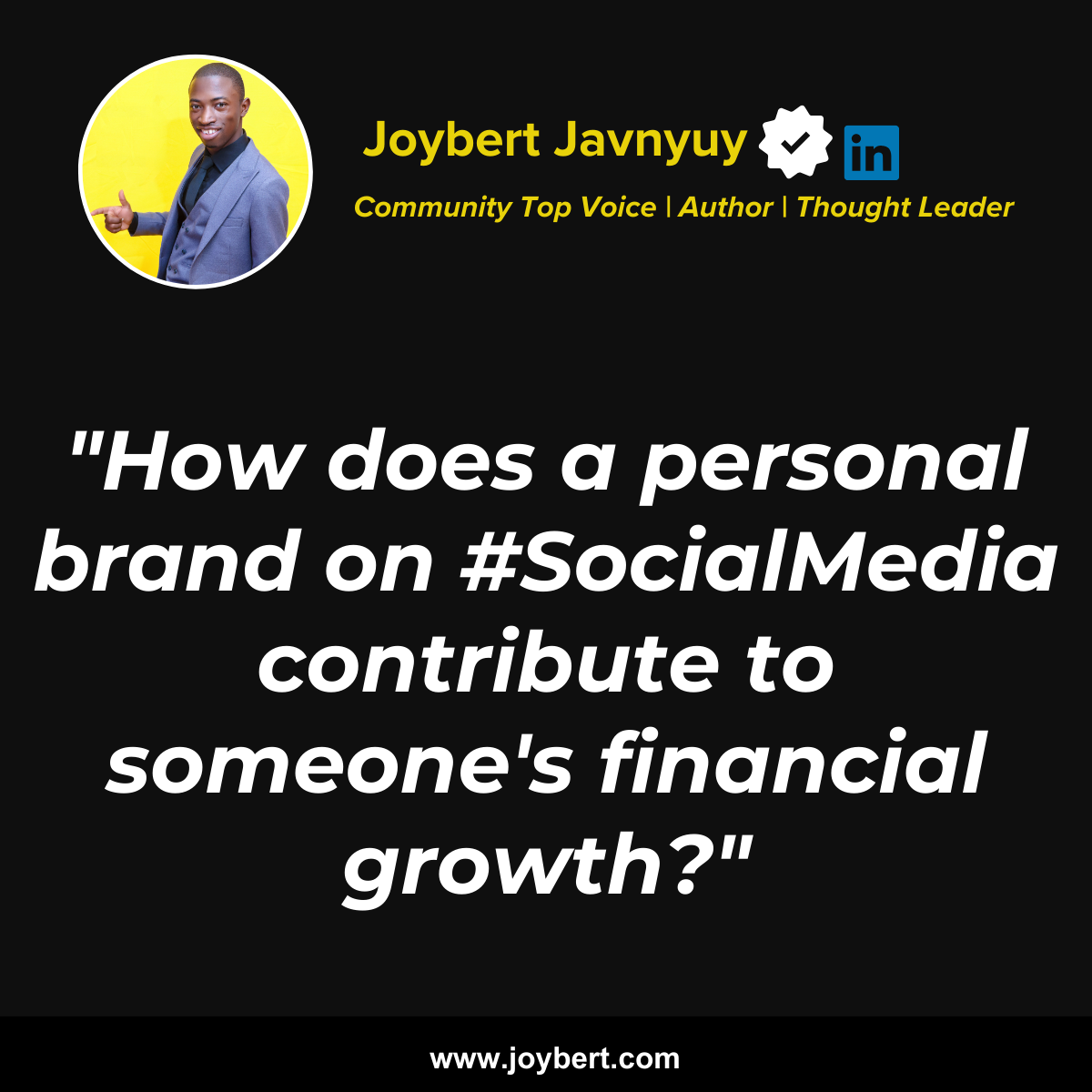 How Personal Brand on Social Media Contribute to Financial Success - Joybert Javnyuy
How Personal Brand on Social Media Contribute to Financial Success - Joybert Javnyuy
In a group WhatsApp call with a couple of friends, we were talking about various topics, and one of my friends asked me a question. He said, "How does a personal brand on #socialmedia really contribute to someone's financial growth?"
I extensively spoke about this and shared some examples. However, for the sake of this brief article, let me share a few:
Action: Regularly post valuable content related to your field.
Action: Engage with industry leaders' content to increase your visibility.
Action: Share insights, trends, and tips that add value to your followers.
Action: Create how-to guides or tutorials in your area of expertise.
Action: Use hashtags and join groups related to your industry to find and connect with like-minded professionals.
Action: Participate in or host live webinars and Q&A sessions to engage your network.
Action: Share your personal stories and experiences that relate to your professional journey.
Action: Showcase client testimonials and success stories to highlight your achievements.
Action: Announce your availability for speaking engagements or consultancy work on your profile.
Action: Collaborate with brands for sponsored content that aligns with your expertise.
Thank you for reading through.
Javnyuy Joybert
Tags: Business Strategy, Entrepreneurship, Personal Branding
 Activate Your Emotional Thermostat – Dr. Javnyuy Joybert
Activate Your Emotional Thermostat – Dr. Javnyuy Joybert
While on a coaching call with a lady, I asked her an unexpected question: "Did you regulate the thermostat in your house today to achieve the desired temperature?"
You see, in the journey towards achieving and sustaining success, this factor plays a pivotal role, akin to the functionality of a thermostat in regulating temperature.
Just as a thermostat maintains an environment's temperature at a set point, effectively managing our emotional responses keeps us in a balanced state, conducive to achieving our goals and maintaining personal well-being.
Success, both in personal endeavors and professional pursuits, is significantly influenced by our emotional drive. This drive propels us forward, fueling our passion, perseverance, and resilience in the face of challenges. However, without the regulating mechanism of high emotional intelligence, this drive can lead us astray, turning potential victories into sources of stress and conflict.
The concept of an "emotional thermostat" metaphorically represents our ability to regulate our emotions. Just as a thermostat detects fluctuations in temperature and adjusts to maintain a set point, we must learn to recognize our emotional responses and adjust them to maintain emotional equilibrium. This regulation is crucial for leaders, professionals, entrepreneurs, and executives, whose decisions and behaviors have far-reaching impacts on their organizations and teams.
The Thermostat Analogy:
The relationship between regulating a thermostat and regulating our emotions lies in the principle of homeostasis—the ability to maintain a stable, balanced state despite external changes. In regulating a thermostat, we set a desired temperature and rely on the system to adjust heating or cooling to maintain that temperature. Similarly, regulating our emotions requires setting a "desired emotional state" and consciously adjusting our responses to maintain this state.
When you activate your emotional thermostat the following will happen:
- Refuse to let anger control your reactions in any situation.
- Avoid speaking impulsively when anger tries to take hold.
- Resist the urge to act recklessly on social media due to emotional turmoil.
- Decline to respond to provocations with anger.
- Choose not to let your emotions dictate your words and actions.
- Reject the temptation to make decisions based on fleeting emotions.
- Refrain from expressing anger without thought or consideration.
- Deny the impulse to lash out in frustration or anger.
- Commit to maintaining composure in emotionally charged situations.
- Decide against allowing temporary emotions to influence long-term relationships.
Effective emotional regulation involves:
Awareness: Recognizing our current emotional state and understanding its impact on our thoughts and actions.
Understanding: Identifying the triggers that cause emotional shifts and understanding why a particular emotion has surfaced.
Choice: Deciding how to respond to our emotions in a way that aligns with our values and goals.
Action: Taking proactive steps to manage our emotions and return to our desired emotional state, just as a thermostat activates heating or cooling to return to the set temperature.
Emotional intelligence involves the ability to understand, use, and manage our emotions in positive ways to relieve stress, communicate effectively, empathize with others, overcome challenges, and defuse conflict. High EI provides us with the tools necessary to navigate the complexities of the workplace, build stronger relationships, and achieve our professional and personal goals.
To sign off, building and maintaining an effective emotional thermostat is essential for anyone aiming for sustained success and significance.
By developing our emotional intelligence, we empower ourselves to navigate life's ups and downs with grace, make informed decisions, and lead with empathy and understanding.
Blessings
Dr. Joybert Javnyuy
Tags: Coaching, Entrepreneurship, Leadership
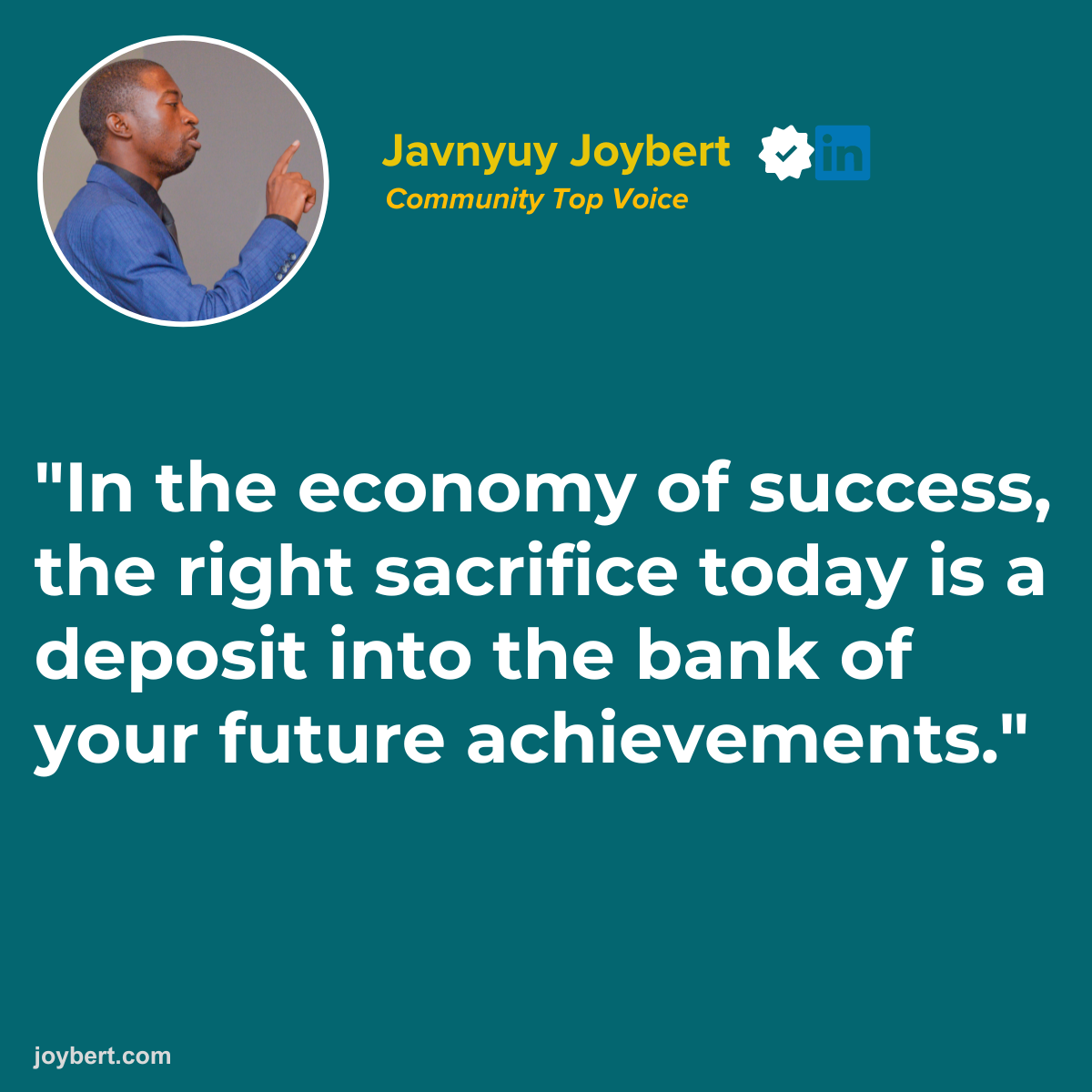 The Common Thread Among Winners - Javnyuy Joybert
The Common Thread Among Winners - Javnyuy Joybert
While in high school, one of my uncles said to me, "The journey to success is paved with the stones of sacrifice."
I was just reflecting on this and I decided to put it down in writing.
You see, whether in career pursuits, business ventures, or personal growth, the willingness to forgo immediate pleasures for long-term achievements is a common thread among the accomplished. Let's unpack this.
At the outset, embracing sacrifice is pivotal. It's about setting a course with a clear acknowledgment that reaching the "top" of your goals will require letting go of certain comforts and distractions. However, this doesn't imply a blind forfeiture of everything. Sacrifices are selective and strategic, aimed at fostering growth and progress.
In any thriving career or business, you will notice a pattern of sacrifices. But it's essential to discern what to keep and what to let go of. Physical health, mental well-being, and family should never be on the chopping block. These are your pillars of strength, the very foundation that sustains you through the challenging journey.
Conversely, the sacrifices often involve cutting down on excessive entertainment, overcoming laziness, stepping out of comfort zones, shedding detrimental habits, and distancing from negative associations. These are the barriers to your growth, the factors holding you back from sailing towards your goals and dreams.
Let me share with you this quote. "The journey to success is not about the sacrifices you make, but about the growth those sacrifices enable." Javnyuy Joybert
Research supports this balanced approach. A study published in the Journal of Personality and Social Psychology found that individuals who could delay gratification and prioritize long-term goals over immediate pleasures were more successful in their personal and professional lives. Another research from Harvard Business Review highlights the significance of maintaining physical and mental health as key to sustained high performance in business and life.
Quote: "Sacrifice is not losing; it's strategically choosing to invest your resources in the dreams that matter most." Javnyuy Joybert
To set your heart on greatness, remind yourself, "On this path, I have chosen, I am ready to sacrifice so I can rise to the top." But remember, it's not about sacrificing everything. It's about wisely choosing what to let go of to ensure your growth isn't stunted by the trivial.
Let your sacrifices be your stepping stones, not stumbling blocks, on your journey to the top.
"In the economy of success, every sacrifice is a deposit into the bank of your future achievements." Javnyuy Joybert
Blessings!
Javnyuy Joybert
Tags: Coaching, Entrepreneurship, Leadership
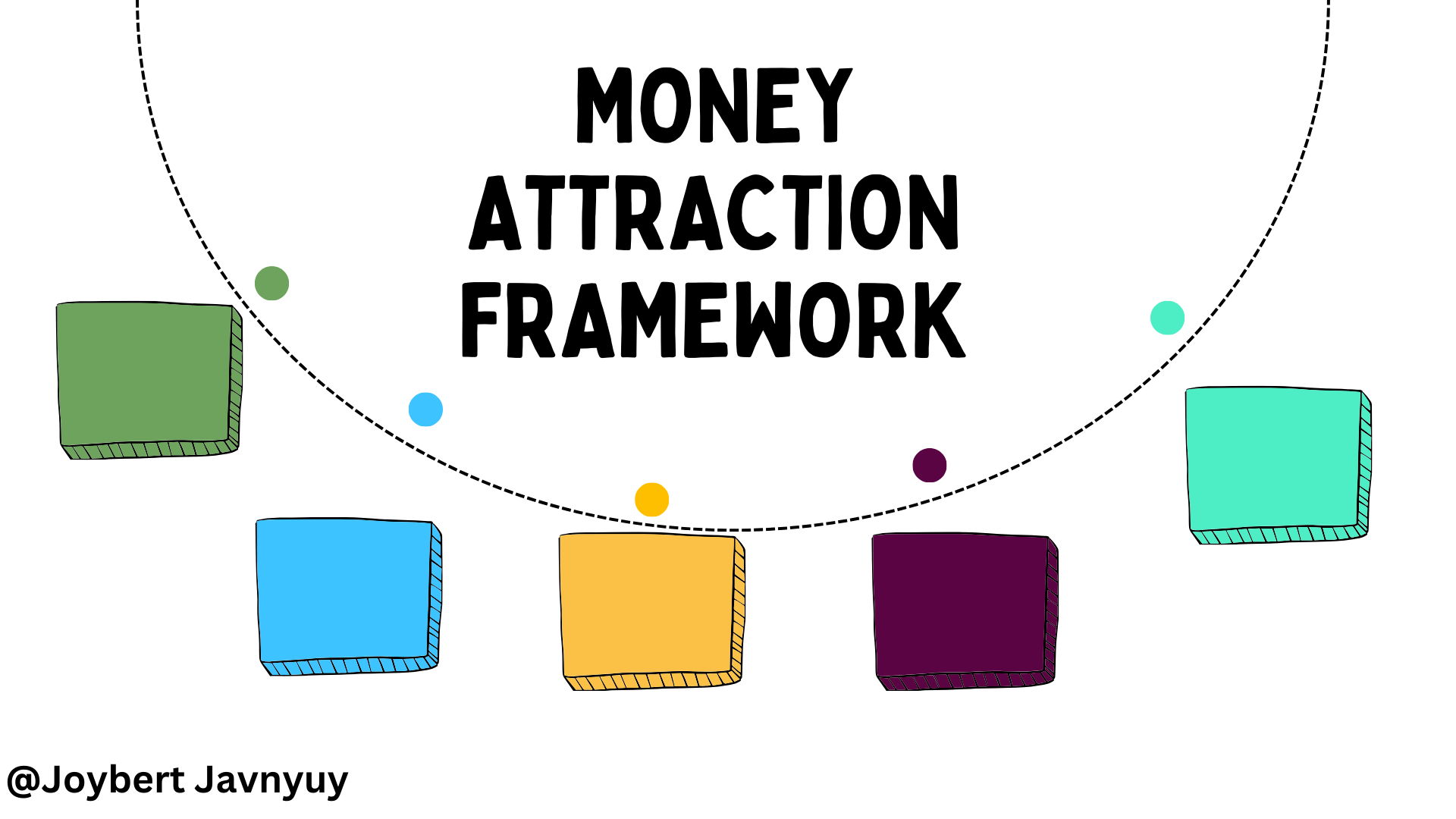 Money Attraction Framework (MAF) by Dr. Javnyuy Joybert
Money Attraction Framework (MAF) by Dr. Javnyuy Joybert
Money Attraction Framework (MAF) by Dr. Javnyuy Joybert
This Money Attraction Framework is created on my belief that money is attracted to value and visibility, and not merely sought after, requires an understanding of how opportunities can be maximized.
Why wait for success to find you? Take control, make a change, and start the journey towards a greater today.
Check out our #Money Attraction Framework (MAF)! It’s not magic, but it might as well be.
Wondering what’s inside? There’s only one way to find out.
Tags: Business Strategy, Coaching, Entrepreneurship
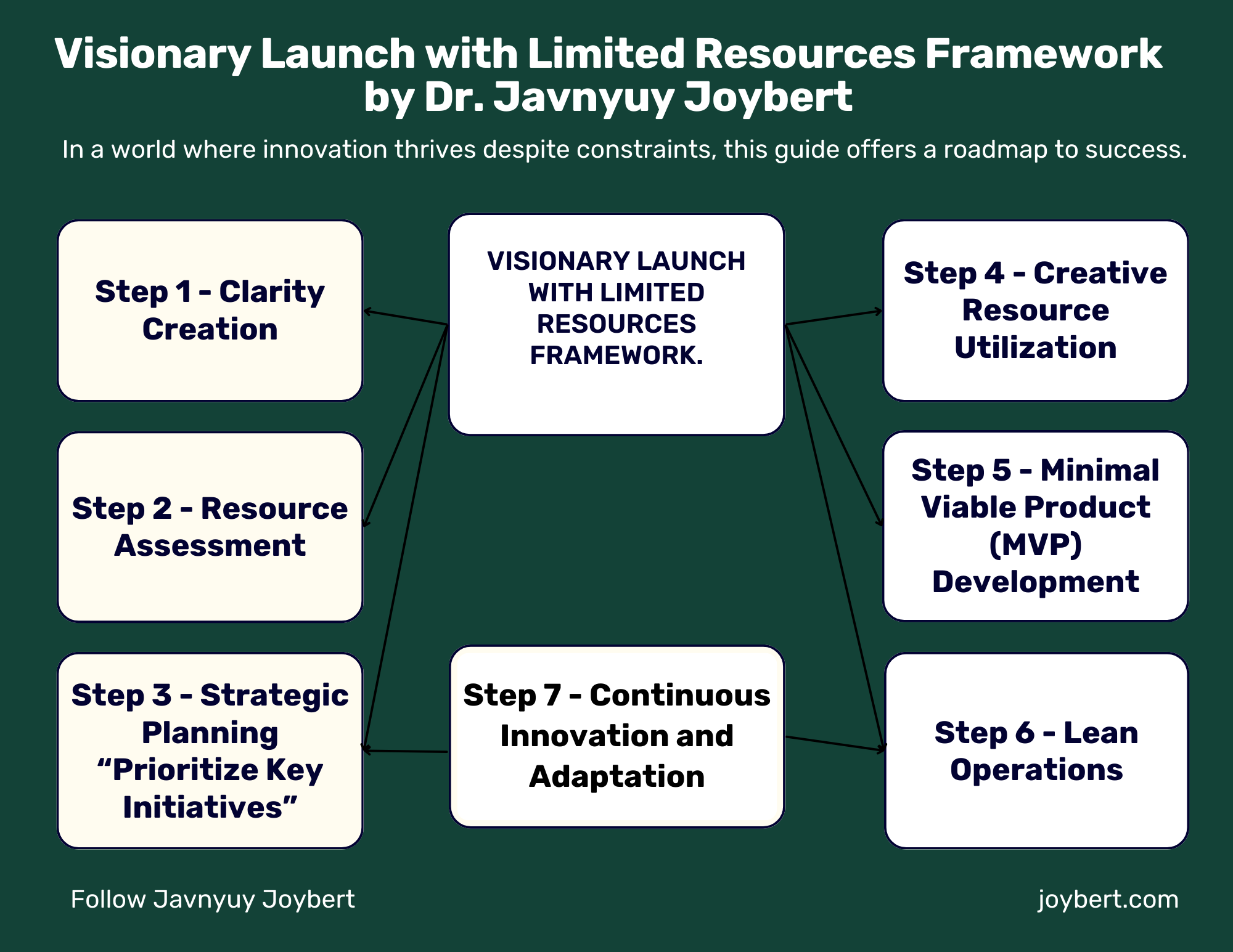 Framework for Visionary Business Launch with Limited Resources by Dr. Javnyuy Joybert
Framework for Visionary Business Launch with Limited Resources by Dr. Javnyuy Joybert
Are you eager to turn your bold ideas into reality, but constrained by limited resources? This transformative framework (guide) provides the keys to success, offering innovative strategies and actionable insights.
Whether you are a budding entrepreneur or a seasoned business leader, this framework will empower you to navigate challenges, capitalize on opportunities, and achieve your goals.
Unlock the power of visionary entrepreneurship with Dr. Javnyuy Joybert's groundbreaking framework, Visionary Launch with Limited Resources.
Read the full framework.
Tags: Business Strategy, Entrepreneurship, Lean Startup
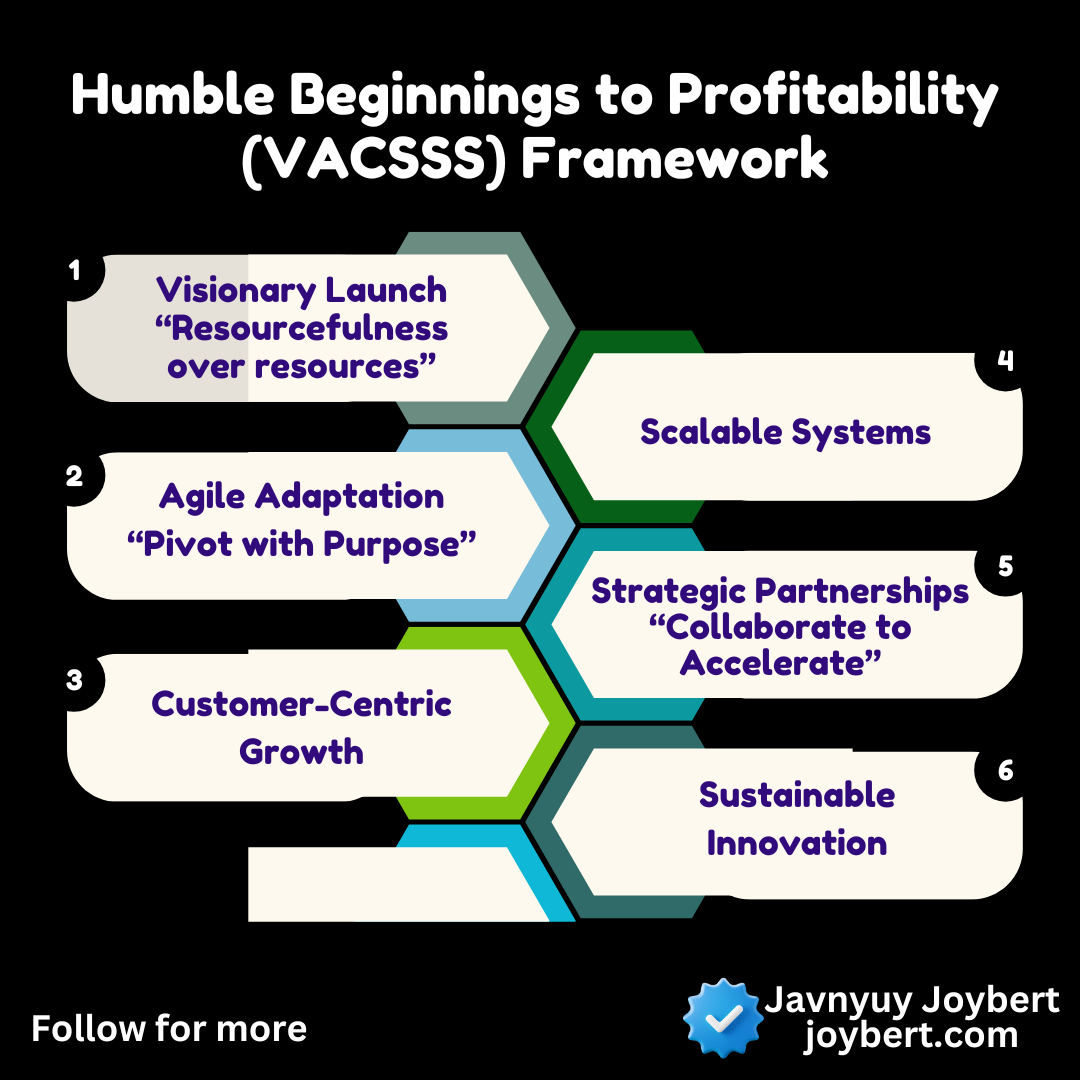 Humble Beginnings to Profitability Framework by Dr. Javnyuy Joybert
Humble Beginnings to Profitability Framework by Dr. Javnyuy Joybert
Humble Beginnings to Profitability Framework by Dr. Javnyuy Joybert
The saying of never underestimating humble beginnings has not only become a time-honored saying but also a foundational principle behind the world's greatest companies.
Driven by this, I have dedicated myself to devising a straightforward yet profound framework that guides entrepreneurs from modest starts to profitable growth.
Here's a unique and original 6-step framework designed to guide startup entrepreneurs towards growth and profitability. I also call it the VACSSS Framework. Read more.
Tags: Business Continuity, Business Strategy, Entrepreneurship
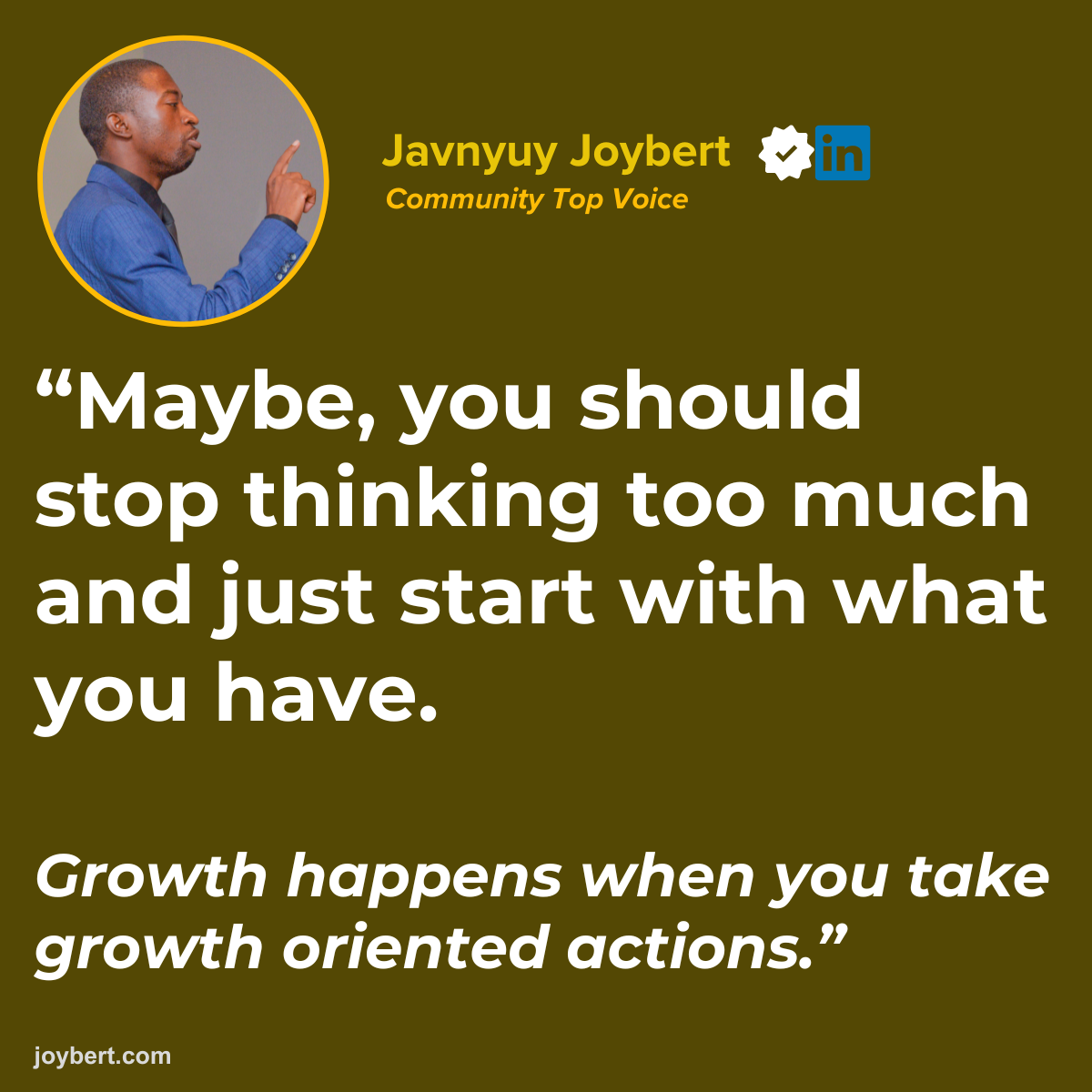 5 +2 Startup Lessons From DHL's Early Days - Javnyuy Joybert
5 +2 Startup Lessons From DHL's Early Days - Javnyuy Joybert
I vividly recall the moment years ago I received my first international package from the USA, delivered straight to me in Kumbo, a semi-urban locale in the North West Region of Cameroon, all thanks to DHL. Few days to receiving the parcel, I was not sleeping well (smiles).
Even if you haven't personally received a parcel from DHL, chances are you have encountered their unmistakable presence. Whether coming across a DHL delivery van on the streets, exploring parcel delivery options, or simply noticing their logo in passing, DHL's global footprint is hard to miss.
In 1969, an old Plymouth Duster (car) with doors of different colors became the start of something big for three ambitious young men: Adrian Dalsey, Larry Hillblom, and Robert Lynn. Their initials, DHL, would soon become synonymous with global parcel delivery.
Zoom ahead 55 years, and the DHL they initiated boasts a fleet of 250 planes, operates 32,000 vehicles, and employs over 550,000 people worldwide. By 2019, this logistic empire had amassed revenues reaching 65 Billion Euros, marking its presence in virtually every nation around the globe!
Here are 5 profound lessons from DHL's early days that are more relevant in 2024 than ever.
DHL's story teaches us the power of starting small.
Your current resources, no matter how modest, are enough to begin.
What you need is the vision to see beyond the immediate.
Maybe, you should stop thinking too much and just start with what you have.
Innovation isn't a one-time act but a continuous process.
DHL started with delivering parcels and evolved into a global logistics powerhouse by constantly adapting and innovating.
The DHL acronym, derived from the founders' surnames, symbolizes more than a name; it represents unity and collaboration. Success is a collective effort, underscored by a team sharing a common goal.
Seek collective intelligence over individual intelligence.
From a single car to a fleet of planes and vehicles, DHL's growth mindset emphasizes the importance of never being complacent. Always look for new markets and opportunities to grow. Growth happens when you take growth oriented actions.
DHL's journey from humble beginnings to a global leader is a testament to the power of perseverance. Obstacles are inevitable, but it's the persistent pursuit of your goals that leads to success. It has taken them decades to get here.
Bonus points
Many people try to sound complicated and sophisticated. No, radical simplicity in your business model can transform challenges into opportunities. Startups should aim for straightforward, easily understandable, and executable strategies that align with their core objectives.
DHL's Start-up Lab encourages internal innovation, showing the value of nurturing new ideas from the team.
Startups should cultivate a culture that encourages experimentation and supports innovative thinking to drive growth .
Whether you are starting a business, leading a team, or embarking on a personal project, remember that great achievements often start with simple steps.
I'd love to hear your thoughts and experiences on applying these lessons in your journey.
#BusinessGrowth #Innovation #Teamwork #Persistence #GlobalBusiness
Your insights?
Cheers
Javnyuy Joybert
Tags: Business Strategy, Entrepreneurship, Startups
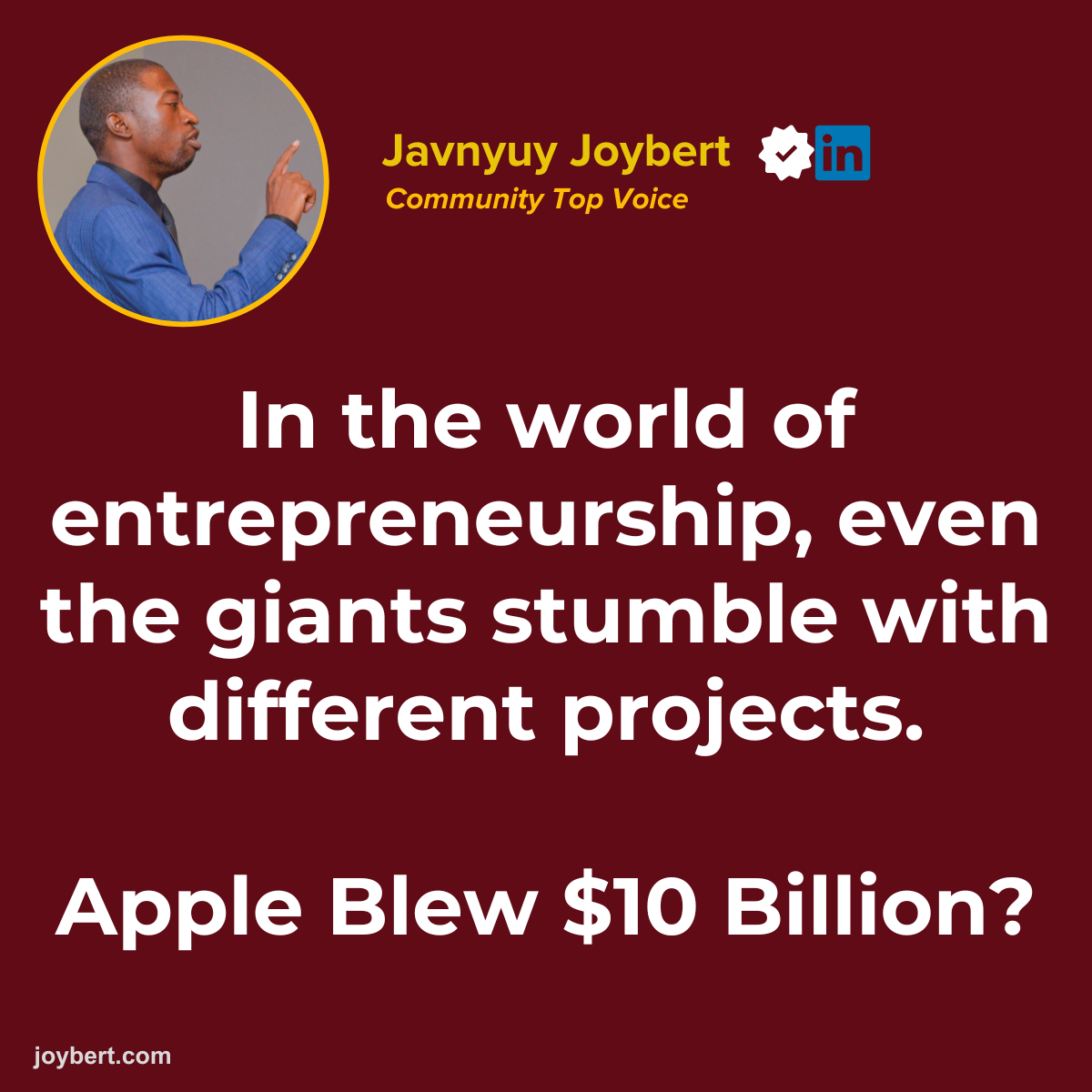 Apple Blew $10 Billion? Even the Giants Stumble: The Lessons for Startups - Javnyuy Joybert
Apple Blew $10 Billion? Even the Giants Stumble: The Lessons for Startups - Javnyuy Joybert
Apple Blew $10 Billion? Even the Giants Stumble: The Lessons for Startups - Javnyuy Joybert
This will not be news for many. The news of Apple discontinuing its billion-dollar car project has been circulating widely across social media and various blogs. This significant move by the tech giant has caught the attention of many, sparking insightful discussions.
In the world of entrepreneurship, even the giants stumble with different projects.
Take Apple's ambitious self-driving car project, which after years of development and a whopping $10 billion spent, was ultimately parked for good.
Aimed at revolutionizing the auto industry with luxurious, self-driving minivans, Apple even flirted with the idea of acquiring Tesla at some point. Yet, despite their vast resources and technological prowess, the project hit a dead end due to;
- technical complexities
- costs, and
- internal issues
So, I was just wondering. What can startup entrepreneurs learn from this?
Embarking on a project as groundbreaking as self-driving technology is a reminder of the patience required to innovate. Despite the disruptive ideas, realism about the challenges and costs involved is crucial. It’s about balancing ambition with feasibility.
Apple’s pivot away from the car business doesn't signal defeat but rather a strategic redirection. The tech giant's foray into the automotive space with CarPlay proves that even if the original vision doesn’t materialize, peripheral successes can emerge. For entrepreneurs, every setback should be a springboard for learning and pivoting.
The internal disagreements within Apple highlight the importance of aligning your team with the project’s vision and execution. For startups, ensuring everyone is on the same page can be the difference between flourishing and floundering. Will this be easy? No. However, it is not impossible. Leadership growth is critical here.
Perhaps the most valuable lesson is recognizing when to step back. In business, we win some and we lose some. Apple's decision to scrap this, despite the sunk costs, underscores the importance of knowing when to halt a project. This doesn’t mean giving up at the first sign of trouble but being wise about when to conserve resources for more viable ventures.
Apple's pivot from the project underscores the power of flexibility in the business world. For startups, the ability to adapt to new information, market changes, or technological hurdles is invaluable. Being rigid can lead to missed opportunities or continued investment in failing ventures. Embrace flexibility, and be prepared to adjust your strategies as needed.
While exploring new territories is important, Apple’s focus on CarPlay after the project illustrates the importance of leveraging core competencies. Startups should take note of this: while it’s beneficial to explore and innovate, remember to build on your existing strengths. This approach can lead to more sustainable growth and open up avenues for innovation and sales within your established domain.
In entrepreneurship, the journey is full of trials, but each misstep is rich with insights. As an entrepreneur, never waste challenges and failures. Tap into the lessons and build forward.
Like Apple, embracing the lessons from every venture, successful or otherwise, can pave the way for future triumphs.
Let’s not fear to chart ambitious courses; let's learn to navigate them with wisdom.
Blessings to your business.
Dr. Javnyuy Joybert
Tags: Business Continuity, Business Strategy, Entrepreneurship
 This Will Make Your Goals Possible - Javnyuy Joybert
This Will Make Your Goals Possible - Javnyuy Joybert
Many times, I like to sit and think deep about the process of living and manifesting our greatest potentials and purpose.
You see, the journey toward achieving our goals is paved not just by the goals themselves but by the habits we form along the way.
You will agree with me that it's a common misconception that simply setting goals is enough to achieve them. The truth, however, is far more complex and infinitely more rewarding. Whether it's about reaching entrepreneurial heights, advancing in our careers, enriching our family life, securing our financial future, or leading with vision, the secret lies in the habits we cultivate.
Think of each goal as a destination on a map.
Follow me...
The habits you form are the steps you take on that journey. Without movement, without consistent and deliberate action, the destination remains a dream. It's akin to wanting to climb a mountain but never practicing the act of hiking or preparing your body for the tough ascent.
Let's break it down further.
Want to become a successful entrepreneur? Form habits of resilience, continuous learning, marketing/sales, effective networking and more.
Eyeing a promotion or a career leap? Cultivate the habit of taking on challenging projects, seeking feedback, and self-improvement.
Hoping to foster a closer family bond? Make it a habit to dedicate quality time, communicate openly, and support each other's dreams.
Aiming for financial stability or growth? Develop habits of saving, investing wisely, and managing debts effectively.
Aspiring to be a visionary leader? Embrace habits of empathy, strategic thinking, and empowering others.
It's important to note that forming these habits doesn't happen overnight. It requires commitment, patience, and a willingness to step out of comfort zones.
Hear me, the beauty of habit formation lies in its compounding effect. Each small action, each day you choose to stick to your habits, you move closer to your goals.
As we navigate the complexities of life and strive towards our goals, let's remind ourselves: the power to achieve them lies not in the goals themselves, but in the habits we form on our way there.
Let's embrace the journey, one habit at a time.
Blessings!
Dr. Javnyuy Joybert
Tags: Business Strategy, Coaching, Leadership
 Entrepreneurship is the Game of 'Mad' Men & Women - Javnyuy Joybert
Entrepreneurship is the Game of 'Mad' Men & Women - Javnyuy Joybert
Let me brief you about this experience I had with my Uncle. We fondly called him Uncle Tatah.
Uncle Tatah was a character, diagnosed with cyclothymic disorder, yet full of life. His visits were always memorable, particularly one in 1998 when he demonstrated an act of audacity that left a lasting impression for me. He frequently made visits due to his close bond with my mother.
One morning, around 3 AM, he proposed an unexpected adventure: to go to the neary forest and get firewood and fetch water from the stream. Overwhelmed with fear, I hesitated, but Uncle Tatah, undaunted by the darkness, proceeded alone. By sunrise, he had single-handedly accomplished the mission, simplifying our morning chores.
Growing up in the village, there is nothing in this world that will push me to the forest or stream in the night to look for anything. What would I be looking for in the nearby forest and stream at night? Absolutely nothing ooh!
Entrepreneurship is often seen as a venture for the audaciously daring—individuals who possess an extraordinary zeal and courage. This brings to mind my late Uncle Tatah, whose spirit and fearlessness now inspire reflections on the essence of entrepreneurship. May his soul rest in peace.
This incident, upon reflection, led me to an epiphany about entrepreneurship: it is not for the faint-hearted. Uncle Tatah embodied the essence of what it means to be an entrepreneur—fearless, bold, and always ready to confront challenges head-on. Even within the family, he was known for his directness and courage, never hesitating to address issues or confront someone when necessary.
Uncle Tatah's actions in the dead of night, achieving what I could not dare even though it was my responsibility to make sure water and firewood is always at home, exemplify the entrepreneurial spirit.
While others slept, he ventured out and succeeded, teaching us that entrepreneurship demands a blend of fearlessness, determination, and the willingness to take the road less traveled.
From Uncle Tatah's life and his approach to challenges, entrepreneurs can draw three key lessons:
- Boldness is Essential: To embark on entrepreneurial ventures, one must possess the courage to face fears and uncertainties. The willingness to step into the unknown, much like venturing into the forest at night, is what sets successful entrepreneurs apart.
- Action Overcomes Fear: Fearlessness is not the absence of fear but the determination to act despite it. Uncle Tatah's readiness to fulfill tasks that others shied away from highlights the importance of action in overcoming obstacles.
- The Value of Initiative: Success often comes to those who are willing to take the initiative while others hesitate. Uncle Tatah's proactive approach—accomplishing tasks while others slept—underscores the significance of seizing opportunities and making the most of one's time.
Entrepreneurship, much like Uncle Tatah's ventures into the night, is a journey for those who dare to defy the ordinary, confront their fears, and boldly step forward where others might hesitate.
Entrepreneurship is the game for 'mad' men and women.
Tags: Business Continuity, Business Strategy, Entrepreneurship
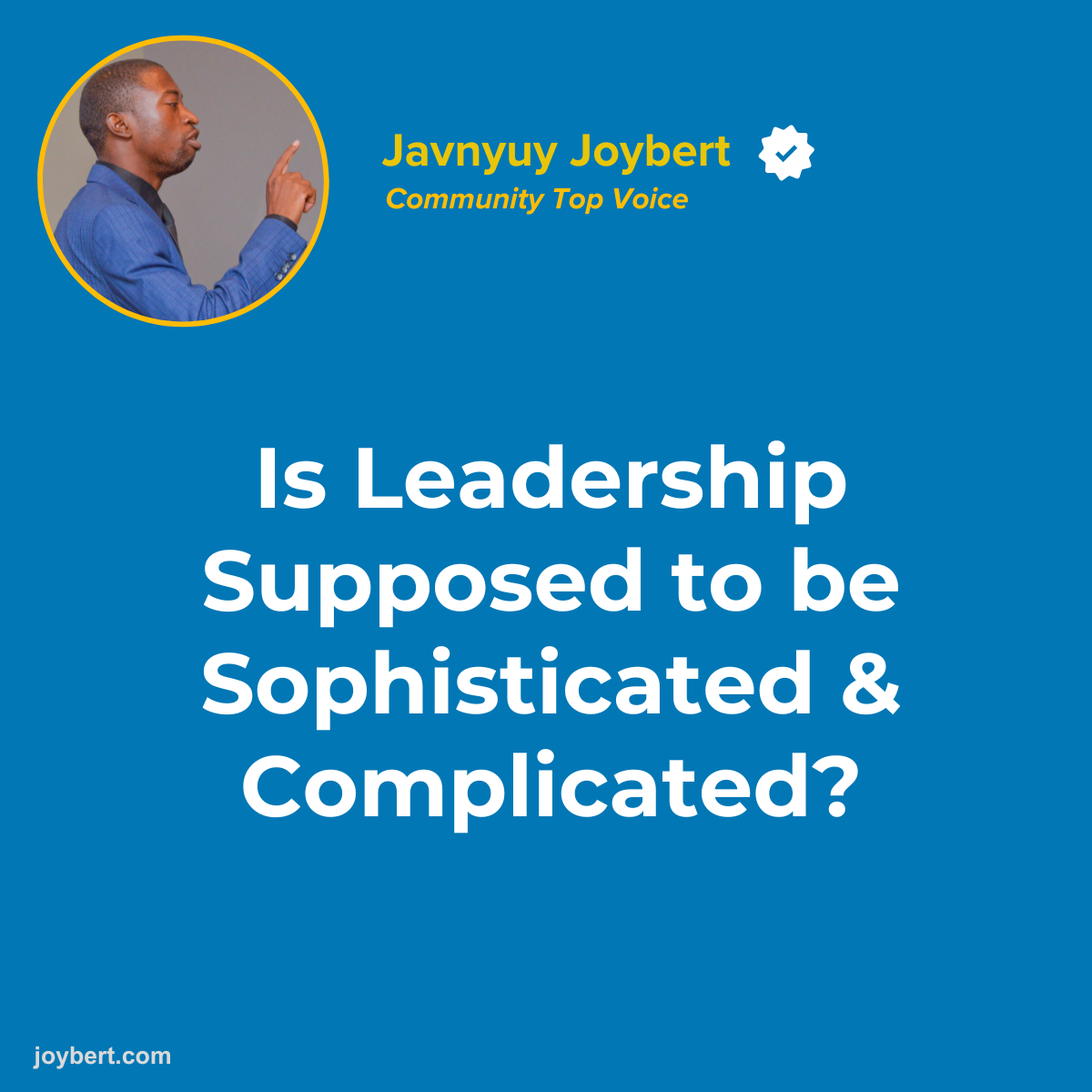 Is Leadership Supposed to be Sophisticated & Complicated? By Javnyuy Joybert
Is Leadership Supposed to be Sophisticated & Complicated? By Javnyuy Joybert
So a few days ago, I was reflecting on the state of leadership in 1990 when I was born and today. Just wondering how things must have changed.
Leadership has undergone a significant transformation over the past years, shifting from traditional, hierarchical models to more inclusive, collaborative approaches. Just 10 years ago, leadership was predominantly about top-down directives, where leaders provided guidance and direction, expecting subordinates to follow without much input.
This approach was rooted in a belief that leaders were more knowledgeable and capable than their followers, focusing on authority and control to achieve organizational goals.
Today, the landscape of leadership is markedly different. The 21st-century leadership model emphasizes;
- collaboration,
- empowerment, and
- inclusivity and more.
Modern leaders are more likely to view themselves as part of a team rather than above it. They value the diverse perspectives and strengths of their team members, fostering an environment where open communication and collective decision-making are the norm. This shift reflects a broader understanding that intelligence and capability are distributed throughout teams, and that harnessing this collective potential is key to achieving success in today's complex, interconnected world .
Here is one truth, in today’s fast-paced world, the essence of (visionary) leadership has become increasingly significant. A common misconception is that leadership involves complexity and sophistication, but the reality is far simpler and more profound. True leadership is about making things easier, producing results, empowering individuals, and democratizing processes without adding unnecessary complications.
You must not be complicated and sophisticated before you can be a leader.
Complexity and sophistication often serve as barriers rather than bridges. They can intimidate and alienate those we aim to inspire and lead.
The hallmark of a great leader is;
- The ability to distill complex ideas into understandable, actionable tasks.
This approach not only clarifies objectives but also encourages participation and innovation among team members. By making things easy, leaders can foster an environment where everyone feels valued and capable of contributing to the collective goal .
Producing results is another cornerstone of effective leadership. It's about setting clear, achievable goals and working collaboratively to reach them. Results are the measure of success in any endeavor, and a leader's ability to navigate the team towards achieving these outcomes is crucial .
Empowerment is at the heart of leadership. It’s about giving people the tools, resources, and confidence they need to succeed. When leaders empower their teams, they build a foundation of trust and respect that drives motivation and commitment.
Democratizing the leadership process is about inclusivity and diversity. A leader recognizes the value of different perspectives and encourages open dialogue. This approach ensures that decision-making is shared, and everyone has a stake in the success of the project .
To round up my talk, leadership is not about complicating things with jargon or creating exclusive circles. It's about simplicity, results, empowerment, and inclusivity.
By focusing on these principles, leaders can inspire their teams to achieve great things, fostering an environment where innovation thrives and goals are reached collectively.
Blessings!
Dr. Javnyuy Joybert
Tags: Business Continuity, Business Strategy, Leadership
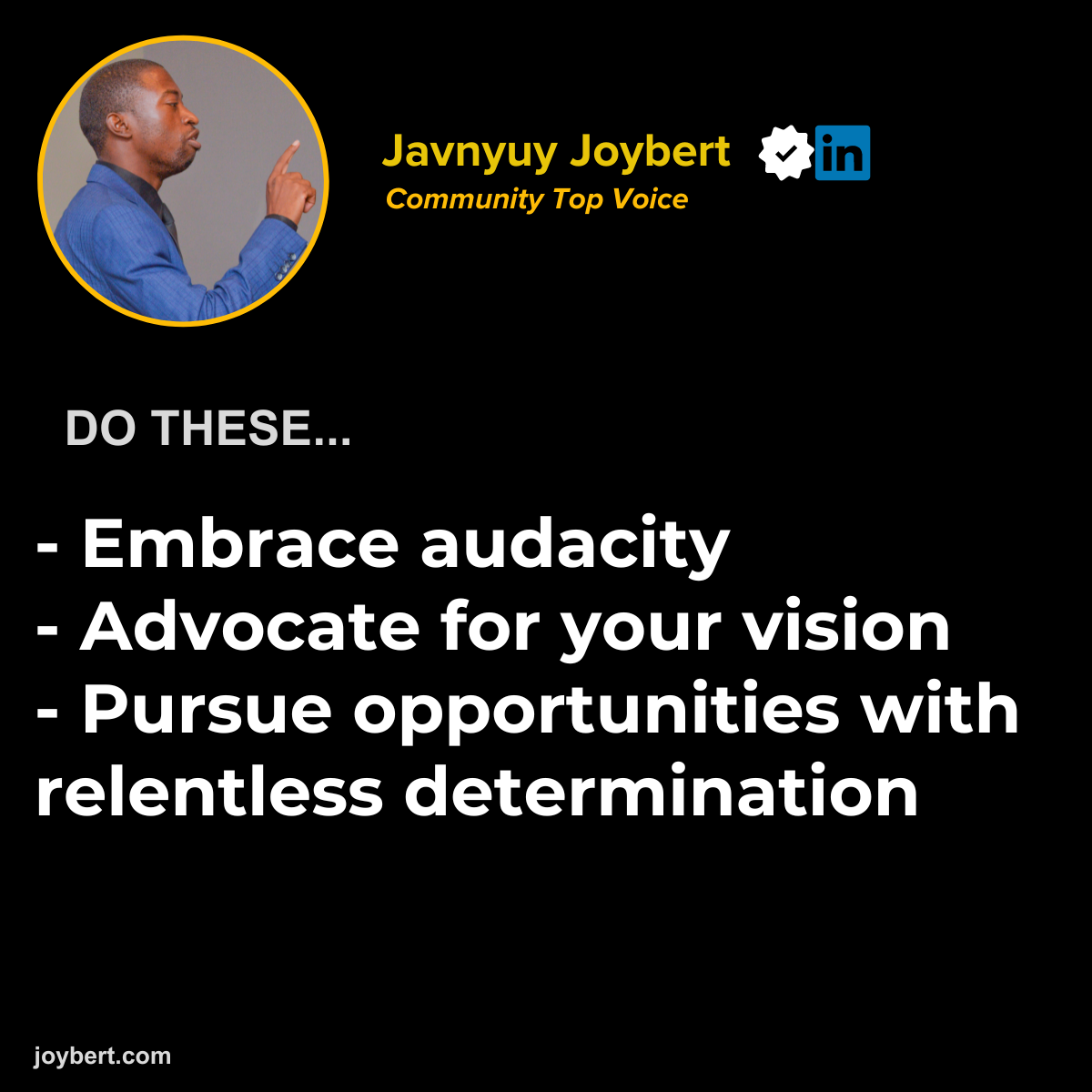 Turn Paralysis into Power...DO THESE - Javnyuy Joybert
Turn Paralysis into Power...DO THESE - Javnyuy Joybert
This can be crazy and challenging. I know this because I have been there many times.
For entrepreneurs and executives, the fear of venturing into unknown territories or making bold decisions can be paralyzing.
This isn't just about facing new challenges; it's about confronting the daunting pressure of leadership, where every decision impacts not only your future but that of your business and or team.
The weight of these expectations can create a stifling environment, where the fear of failure or misstep becomes a constant shadow, hindering innovation and bold leadership. True right?
This intensifies as the marketplace evolves rapidly, like what we have seen in the last 5 years (if I may say so) demanding quick adaptation and visionary thinking.
In this high-stakes arena, hesitancy can lead to missed opportunities, allowing competitors to seize the advantage and potentially diminishing your brand's impact and growth. The haunting what-ifs of unexplored strategies and unclaimed market leadership can become a persistent echo, underscoring a narrative of potential unfulfilled.
However, there lies an intriguing possibility within this challenge: the untapped potential for transformative leadership that emerges when fear is confronted with audacity.
Envision a leadership style that thrives on bold, innovative decisions, where advocating for your vision and embracing risk become the catalysts for disruption and growth. Imagine leading not from the sidelines but from the forefront, where your actions inspire confidence and drive within your team.
The future can be one of unparalleled growth and innovation, where fear transforms into the fuel for bold, strategic decisions that propel your business forward.
By embracing audacity, advocating for your vision, and pursuing opportunities with relentless determination, you carve out a path of distinguished leadership and impactful change.
Let me say it again;
- Embrace audacity
- Advocate for your vision
- Pursue opportunities with relentless determination
The solution for entrepreneurs and executives facing these challenges is to reframe fear as an opportunity for growth.
Embrace the audacity to push boundaries, advocate for your innovations, and navigate the complexities of leadership with confidence.
Let each bold step forward, taken despite fear, redefine what's possible for you and your business, turning potential into tangible success and results.
Build forward.
Cheers
Javnyuy Joybert
Tags: Business Strategy, Leadership, Management

Location: USA and Virtual Fees: 3000
Service Type: Service Offered
 From Shadows to Spotlight: Turning a Troubled Past into a Bright Future
From Shadows to Spotlight: Turning a Troubled Past into a Bright Future
Location: USA and Virtual Fees: 3000
Service Type: Service Offered